#happy Trump election day everyone here's a TRAIN
Explore tagged Tumblr posts
Text
IT'S NOT NEW STORY IT'S A FUCKING BATTLE TOWER
#AUUUUUUGH!!!!!!!!!!#PAIN AND MISERY!!!!!!!!!!!#like ok ok. I'm super glad they're adding this to the game don't get me wrong.#I've wanted this for a while cause I genuinely LOVE battling in cassette beasts and hate that post-post game you really only get fusions#but like...so. no new lore?#maybe I'm wrong! maybe there will be some lore added alongside this and they're just being coy about it#I'm still a little bummed though :/#lotta hype for something that arguably should've been in the core game already#whatever I'm just being a hater#also crazy fucking day to release this#I know they're in Britain and all but like#happy Trump election day everyone here's a TRAIN
6 notes
·
View notes
Text
The Nation
Donald Trump has been elected and this poem wont age well
Because it will all be okay in the
Eyes of those who are happy
With the final tally.
For the record, this country is
Sexist as fuck.
Racist as fuck.
And this vote proved just that.
It voted for him and set him upon the world.
Had it been anyone else
I perhaps could sit here
And say, well, maybe they got
It right.
This poem wont age well
because I’ll never believe that
but in the eyes of history
I will be proved wrong.
This is what it took to move them
To secure them.
The police couldn’t do their job
until he was elected,
now they are everywhere.
This was a final blow from America.
A hearty fuck you, to all who
stood on empathy and dared to
be saviors of an ungrateful nation.
Last night, at 2:00 am,
my neighbors set off fireworks in celebration.
The time signifying the hour the race was called.
I will remember that with all my senses for all my days.
For their sakes, I hope it was all worth it.
I hope they feel better about the world
they are about to create.
But we are all overacting because
I’m telling you
This poem wont age well
because they will say
I was scared,
As if I didn’t see them before they chose their dictator.
How they came at everyone violently and intently.
How they made us all feel as if we were
Inherently evil because we existed.
How they tried to make us all feel as if they were the ones who were oppressed.
I’ ve lived in their communities and I knew better
They are far from oppressed.
But…
The real problem was the one who did not identify with them.
There was something wrong with living well
And being well and being unbothered and
taking up space in spaces where we had a right to be.
We were, harassed in natural spaces, on planes, in churches,
On trains, on cruises, in nail salons, inside of Walmarts
And shot and killed in Supermarkets,
I mean you would have thought it was 1960 what
1960 who—Hey, the motor city is burning y’all or is that
Ferguson---speaking of which--I wish motherfuckers had not let up
But I know why you did.
Because like we did after they beat Rodney King half to death
We believed them when they said they were sorry.
The nation lied to us again
As it has done for centuries.
Oh yes, I will remember.
But this poem won’t age well
Because everyone will be happy.
The bigotry, hatred, racial harassment, and the war on
all that makes autonomous and secure within us.
All that gives us what we truly desire
the safety to be
will now be returned to us in a way that makes it more palatable
for their consumption,
now that they are free to repress the world.
My heart aches in a way that is nearly impossible to bear
To know the level of suffering that is about to be
Enacted on the people of this city, the people of this state,
The people of this country, the people of this world.
The actions taken over the next four years will reverberate for decades
It is not hyperbole
In every way I will do my part
to not take part.
But this poem will not age well.
The victors will make it all well.
The press will be all ears.
It will write of how things are just fine.
Yesterday, I went to Orchard Beach to have a cup of coffee and to watch the sun.
I was set upon by a NYPD officer as if I was a criminal.
First, I was I thought that was funny.
here I am, a 30-year professional in my craft.
A true master of what I do.
And that makes me no less susceptible to being criminalized in my own neighborhood.
And It has been that way.
And it will be that way
Until the poor are embraced as a part of the community that must be cared for.
There are no elites among us. Not anywhere here.
Not true ones.
The accomplished among us all had bosses to answer to.
The true oppressors---answer to no one.
Nor will they.
The nation.
The true nation
The nation I grew up in.
The nation I learned about in
Public School 200,
Thomas Jefferson Middle School
Intermediate School 10,
Public School 46,
Teaneck High School,
Howard University and Hunter College
Is no more.
We are back to square one in so many ways
So I will be Malcolm looking out the window with the joint
until further notice.
No Justice.
No Peace.
1 note
·
View note
Text
ltdan2288 asked: As a fellow veteran of the Afghan Campaign, might I ask if you have any thoughts about the imminent end of Allied air support & combat-advisory operations over there? The fall of large swaths of the country to the Taliban is already underway, which can only be seen as an unspeakable tragedy for the people there. From a strategic perspective, there’s no reason to believe that we won’t have to return in some capacity of AQ or ISIS reestablish themselves under Taliban sponsorship. At the same time, it’s not clear to me that our presence did anything beyond kick the can down the road and delay this inevitable outcome. As someone with such a deep knowledge of military history, I’m curious if you have a different perspective.
I have been avoiding answering this post for a while now because Afghanistan dredges up so many conflicting emotions inside me. I wrestle with so many memories of my time there with my regiment to fight in a war that we all didn’t really understand what we were fighting for.
Deep breath.
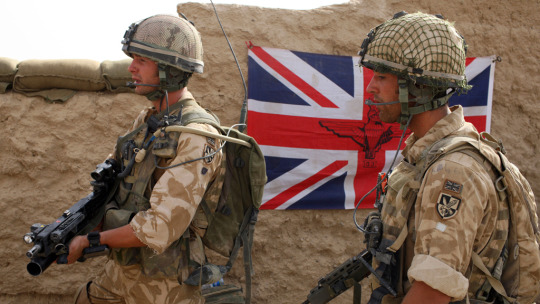
Almost two decades of conflict in Afghanistan has cost British taxpayers £22.2billion, or $31.3 billion according to UK government figures. As British troops prepare to leave Afghanistan, the 20-year deployment bill could be even higher. As of May 2021, the total cost of Operation Herrick (codename for the deployment of British soldiers to Helmand province) is £22.2billion. There were 457 fatalities on, or subsequently due to, Op Herrick. Of which 403 were due to hostile action. During the operation between January 1, 2006 and November 30, 2014, there were 10,382 British service personnel casualties. Of these 5,705 were injuries and the remainder being illness or disease. The UK’s remaining 750 troops in Afghanistan, involved in training local forces, started exiting the war-devastated country in May. Most of them will return home by the end of July.
They, like every one of us who went to fight in Afghanistan, will ask the same questions, ‘Why did we go there?’ ‘What was the real purpose of the mission?’ ‘Was it worth it?’
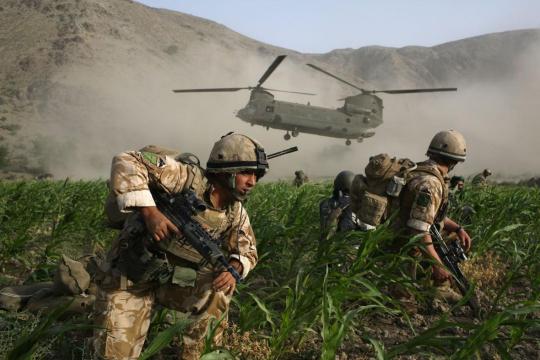
Both my older brothers fought there with special distinction and I later fought there too. I have very mixed emotions when I think about my time in Afghanistan. For all its faults and tortured history, I love that country and love its many ethnic people. I even started to learn Pashtu as I already had a spoken command of Urdu because I had been raised partly in both Pakistan and India and it’s where many Afghan refugees living in the UN camps for over a generation had learned Urdu too.
It’s not just that my family has history in Afghanistan going back to the days of the East India Company but I had a sincere respect for its culture and history as one of the central hot spots for great civilisational achievements, but also as a stubborn and unruly country who proudly defied the Great Powers to bend the knee and turned it into a ‘graveyard of empires’. Most of all I think of the friendships I made there and how my perspective on life changed as a consequence of knowing such resilience and fortitude in the face of catastrophe and death.
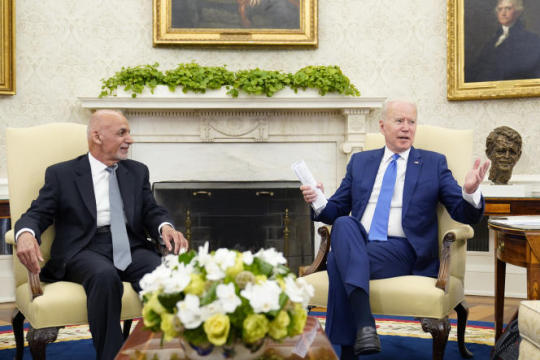
I’m sure like everyone else I wasn’t too surprised by President Biden’s announcement that he was announcing the imminent withdrawal of all American troops in Afghanistan. He wanted to pivot to something else when asked about it. “I want to talk about happy things, man!” He said. Who could begrudge him given that America has been at war in Afghanistan for a better part of 20 years and has nothing to really show for it. Except of course the loss of its brave service men and women as well as the death of thousands of Afghan civilians. It spent more than $2 trillion to kill Osama bin Laden, the architect behind 9/11 attacks and failed to convincingly snuff out both murderous terror groups, Al Qaeda and ISIS.
When the Secretary General of Nato announced back in April 2021 all alliance troops were to be withdrawn from Afghanistan, it was made to look like a nice, clean, enunciation of a joint decision. The end date was set for 11 September, 2021 - 20 years after the terrorist attacks on New York and Washington - and it was in line with the oft-repeated alliance maxim: we went in together; we will come out together. Except that, on closer examination, it was all rather messier.
This was partly because the withdrawal from Afghanistan had actually been Trump’s policy, so here was Joe Biden, the anti-Trump, co-opting a policy from his predecessor (a policy Trump had been so keen on that he tried to accelerate the withdrawal after he lost the election). Biden then tried to detach it from Trump by slowing down the withdrawal date a little and expressing it in terms more comprehensible to the Washington establishment and to US allies.
Where Trump had essentially done a deal with the Taliban and set a withdrawal date of 1 May, Biden left the Taliban out of it and invoked the totemic date of 9/11. This does not mean, of course, that the withdrawal will not be completed a good deal sooner - once you announce a withdrawal, you might as well get on with it.
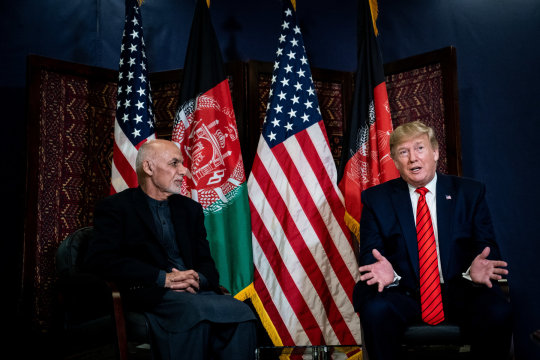
In fact, Biden had to make a decision one way or another, given the rapid approach of Trump’s 1 May withdrawal date. And, whether it came from Washington or Nato, it was pretty low key for an announcement that a 20-year military involvement that had cost 4,000 allied lives was ending. Indeed, many people beyond Washington and Afghanistan might not quite have registered the news, given the considerable noises from Nato’s simultaneous dire warnings about Russia massing troops on the Ukrainian border, the death of the Duke of Edinburgh in the UK, and the Covid pandemic everywhere.
And distractions were needed not just because Biden was implementing a Trump policy. It was also because he was ordering an unconditional withdrawal – which he justified, correctly, by saying that setting preconditions would mean that the troops could be there forever. It was a risk Biden knew all too well, given that Barack Obama had been persuaded by General David Petraeus – against his election pledges and his better judgement – that what Obama really wanted was not a withdrawal, but a ‘surge’ with conditions attached before a withdrawal could take place.
Distractions were also useful for London, where the timing was hardly ideal. Imagine you were in government in London, you had watched the dismal failure of the UK’s Herrick operations in Helmand Province between 2006 and 2014, you knew that your armed forces had suffered 456 deaths in 20 years, with many more severely injured, but you had hung on in there.
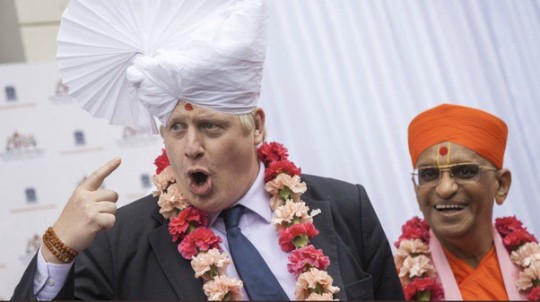
Your government had also just released a blueprint for foreign and security policy, setting future priorities even further from home, in the Indo-Pacific, and your Prime Minister was about to make a high-profile visit to India as part of his post-Brexit ‘Global Britain’ branding . In those circumstances, an announcement that the US had decided to leave Afghanistan, giving you no choice but to follow, was almost exactly what you did not need. Rather than showing the UK as a powerful, autonomous military actor and a valued ally, it showed the exact opposite.
It also reminded an unhappy British public about a costly conflict it had rather forgotten. And those who did more than bother to remember - like the families who lost loved ones on the battlefield - and who over the years have blamed successive governments for moving the goalposts and lacking an exit strategy (all true too).
All of which might explain why the UK’s Foreign and Defence Secretaries followed the US example by changing the subject to the iniquities of Russia and China, rather than issuing a joyous pronouncement to the effect of: hooray and thank goodness, our boys and girls are coming home.
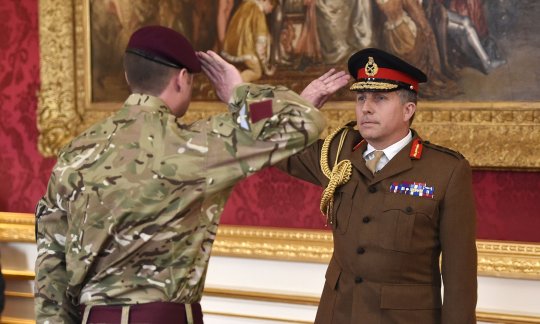
The UK’s Chief of Defence Staff, General Sir Nick Carter gave a subdued, unenthusiastic response to Biden’s announcement. I cannot remember such open acknowledgement of UK-US military policy friction in recent decades - or such an abject admission by the UK of its defence dependence on the US. What Carter said was that the unconditional withdrawal was ‘not a decision we had hoped for, but we obviously respect it and it is clearly an acknowledgement of an evolving US strategic posture’. In other words, the UK had opposed Biden’s decision – or would have done, if asked (which is not clear). Also, that it was Washington’s ‘strategic posture’ that had ‘evolved’, not the UK’s. He suggested there was a real danger that progress made could be lost and that there could be a return to civil war, with the Taliban maybe returning to power - again, all true.
Given that the UK officially has only 750 troops in Afghanistan at present, and most of them are there in a training capacity, to dissent from the US position so openly would be considered decidedly rude in the Ministry of Defence. Perhaps to that end, General Carter played the dutiful soldier and had to - through gritted teeth - put a positive gloss on Afghanistan’s future, insisting that the objective in going into Afghanistan, ‘to prevent international terrorism emerging from the country’, had been achieved which was ‘great tribute to the work of British forces and their allies’.
He also said that Afghan forces were ‘much better trained than one might imagine’ and that the Taliban ‘is not the organisation it once was’, so that ‘a scenario could play out that is actually not quite as bad as perhaps some of the naysayers are predicting.’ Blah blah blah. He’s wrong, and I think he knows it but only in the sanctity of his gentlemen’s club might he truly admit it.
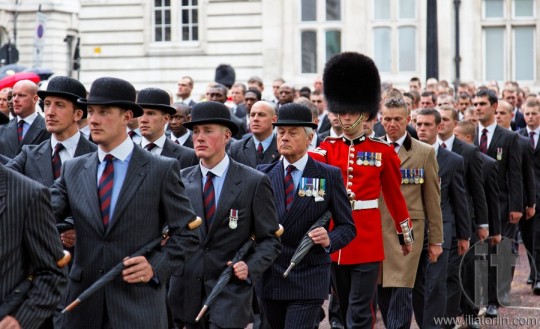
I know he’s wrong because the chatter amongst ex-veterans I know is that we’ve made a balls up of Afghanistan yet again - by ‘again’ I mean from the past 200 years of us Brits trying to bring order to chaos in Afghanistan and getting burned for our troubles.
Both my father and my older siblings tell me what their friends and ex-service peers (some very senior indeed) have been nattering over a drink at their gentlemen clubs where ex-veterans haunt the club bar. Many just shake their heads in sighed resignation before burying themselves in the Times crossword or drowning their sorrows with a beer or two at how lock in step we’ve become to the Americans at a time when the British army is re-branding itself as a more independent nimble hi-tech impact army (the creation of a new ranger regiment being but one example).
Still if President Biden wanted to tie a neat bow on U.S. involvement in Afghanistan - saying, as he had, that the logic for the war ended once al-Qaida was gutted and Osama bin Laden killed - then it reveals a stunning lack of introspection about the United States’ role in the conflict that will continue in Afghanistan long after the last American and British troops leave.
Less than three months after President Joe Biden declared that the last American troops would be out of Afghanistan by September 11th, the withdrawal is nearly complete. The departure from Bagram air base, an hour’s drive north of the capital, Kabul, in effect marked the end of America’s 20-year war. But that does not mean the end of the war in Afghanistan. If anything, it is only going to get worse.
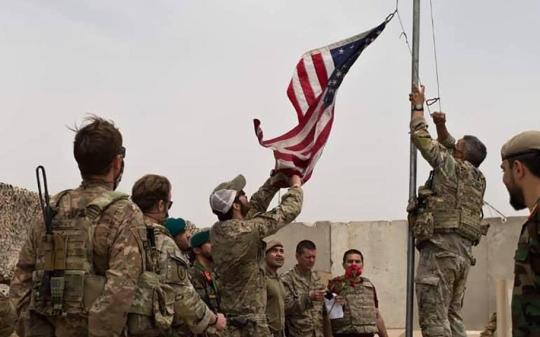
It is true that the president had no good choice on Afghanistan, and that he inherited a bad deal from his predecessor. There are never good choices when it comes to Afghanistan: only bloody trade offs.
But in announcing an unconditional withdrawal, he made the situation worse by throwing out the minimal conditions U.S. Special Envoy Zalmay Khalilzad had negotiated under the Trump administration. U.S. envoy Zalmay Khalilzad has delivered to the Afghan government and Taliban a draft Afghanistan Peace Agreement - the central idea of which is replacing the elected Afghan government with a so-called transitional one that would include the Taliban and then negotiate among its members the future permanent system of government. Crucial blank spaces in the draft include the exact share of power for each of the warring sides and which side would control security institutions.
The refrain now from the Biden administration is that the United States is not abandoning Afghanistan, that it will aim to do right by Afghan women and girls, and that it will try to nudge the Taliban and Kabul toward a peace deal using a diplomatic tool kit.
But the narrative ignores much of the reality on the ground. It also ignores history.
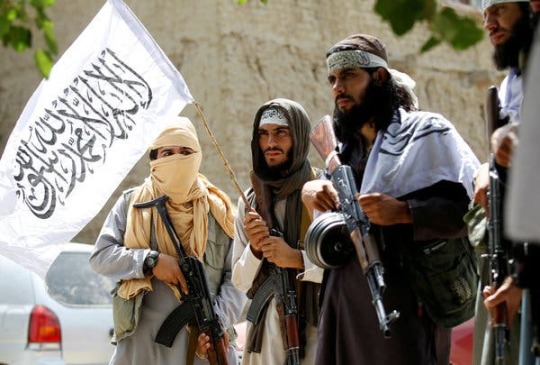
In theory, the Taliban and the American-backed government had been negotiating a peace accord, whereby the insurgents lay down their arms and participate instead in a redesigned political system. In the best-case scenario, strong American support for the government, both financial and military (in the form of continuing air strikes on the Taliban), coupled with immense pressure on the insurgents’ friends, such as Pakistan, might succeed in producing some form of power-sharing agreement.
But even if that were to happen - and the chances are low - it would be a depressing spectacle. The Taliban would insist on moving backwards in the direction of the brutal theocracy they imposed during their previous stint in power, when they confined women to their homes, stopped girls from going to school and meted out harsh punishments for sins such as wearing the wrong clothes or listening to the wrong music.
More likely than any deal, however, is that the Taliban try to use their victories on the battlefield to topple the government by force. They have already overrun much of the countryside, with government units mostly restricted to cities and towns. Demoralised government troops are abandoning their posts. In the first week of July 2021, over 1,000 of them fled from the north-eastern province of Badakhshan to neighbouring Tajikistan. The Taliban have not yet managed to capture and hold any cities, and may lack the manpower to do so in lots of places at once. They may prefer to throttle the government slowly rather than attack it head on. But the momentum is clearly on their side.
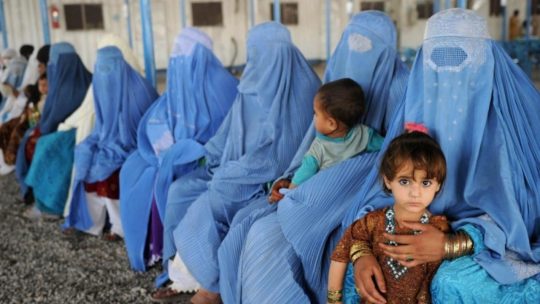
America and its NATO allies have spent billions of dollars training and equipping Afghan security forces in the hope that they would one day be able to stand alone. Instead, they started buckling even before America left. Many districts are being taken not by force, but are simply handed over. Soldiers and policemen have surrendered in droves, leaving piles of American-purchased arms and ammunition and fleets of vehicles. Even as the last American troops were leaving Bagram over the weekend of July 3rd, more than 1,000 Afghan soldiers were busy fleeing across the border into neighbouring Tajikistan as they sought to escape a Taliban assault.
As the outlook for the army and for civilians looks increasingly desperate, so do the measures proposed by the government. Ashraf Ghani, the president, is trying to mobilise militias to shore up the flimsy army. He has turned for help to figures such as Atta Mohammad Noor, who rose to power as an anti-Soviet and anti-Taliban commander and is now a potentate and businessman in Balkh province. “No matter what, we will defend our cities and the dignity of our people,” said Mr Noor in his gilded reception hall in Mazar-i-Sharif, the key to holding the north (sounds like Game of Thrones). The thinking is that such a mobilisation would be a temporary measure to give the army breathing space and allow it to regroup and the new forces would co-ordinate with government troops to push back hard on the Taliban.
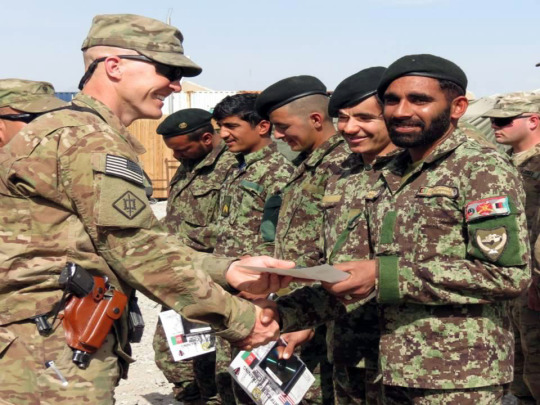
However this is Afghanistan. The prospect of unleashing warlords’ private armies fills many Afghans with dread, reminding them of the anarchy of the 1990s. Such militias, raised along ethnic lines, tended to turn on each other and the general population.
With America gone and Afghan forces melting away, the Taliban fancy their prospects. They show little sign of engaging in serious negotiations with Mr Ghani’s administration. Yet they control no major towns or cities. Sewing up the countryside puts pressure on the urban centres, but the Taliban may be in no hurry to force the issue. They generally lack heavy weapons. They may also lack the numbers to take a city against sustained resistance. On July 7th they failed to capture Qala-e-Naw, a small town. Besides, controlling a city would bring fresh headaches. They are not good at providing government services.
Perhaps the Taliban have learned their history lesson and might refrain from attacking Kabul this time around. Their best course may be to tighten the screws and wait for the government to buckle. American predictions of its fate are getting gloomier. Intelligence agencies think Mr Ghani’s government could collapse within six months, according to the Wall Street Journal. So clearly the momentum is on the side of the Taliban and they just need to chip away at Ghani’s forces one district after another until the inevitable and hateful surrender of the central Afghan government to their demands.
At the very least, the civil war is likely to intensify, as the Taliban press their advantage and the government fights for its life. Other countries - China, India, Iran, Russia and Pakistan - will seek to fill the vacuum left by America. Some will funnel money and weapons to friendly warlords. The result will be yet more bloodshed and destruction, in a country that has suffered constant warfare for more than 40 years. Those who worry about possible reprisals against the locals who worked as translators for the Americans are missing the big picture: America, Britain and other allies are abandoning an entire country of almost 40m people to a grisly fate.

Nothing exemplifies - at least in Afghan eyes - of all that has gone wrong with American involvement in Afghanistan than in the manner of their leaving.
The U.S. left Afghanistan's Bagram Airfield after nearly 20 years by shutting off the electricity and slipping away in the night without notifying the base's new Afghan commander, who discovered the Americans' departure more than two hours after they left in the middle of the night without raising any alarms.
They left behind 3.5 million items, including tens of thousands of bottles of water, energy drinks and military MRE's (Meals Ready to Eat ration packs to the uninitiated). Thousands of civilian vehicles were left, many without keys to start them, and hundreds of armoured vehicles. The Americans also left small weapons and ammunition, but the departing US troops took heavy weapons with them. Ammunition for weapons not left for the Afghan military was blown up.
Now that is some feat considering the logistics of this mass exodus without drawing any attention. You have obviously been to Bagram and so you will know just how big and sprawling it is. Bagram Airfield is the size of a small city, roadways weaving through barracks and past hangar-like buildings. There are two runways and more than 100 parking spots for fighter jets known as revetments. One of the two runways is 12,000 feet long and was built in 2006. There's a passenger lounge, a 50-bed hospital and giant hangar-size tents filled with furniture. And all those shops to remind Americans of home from familiar fast food restaurants and hairdressers and massage parlours to buying clothing and jewellery and buying a Harley Davidson motorbike (or so I’ve been told).
I’m guessing that the Afghans were certainly outside of the wire and probably had not been inside Bagram Airfield for months. So from the outset they would not have had any reason to think anything was going on until the generators probably ran out of fuel and it started to go a little too quiet. The inner gate was probably discretely left unlocked and when the US stopped answering the radio/phone and then they probably investigated.
Before the Afghan army could take control of the airfield about an hour's drive from the Afghan capital, Kabul, it was invaded by a small army of looters, who ransacked barrack after barrack and rummaged through giant storage tents before being evicted, according to Afghan troops. Afghan military leaders insist the Afghan National Security and Defense Force could hold on to the heavily fortified base despite a string of Taliban wins on the battlefield. The airfield includes a prison with about 5,000 prisoners, many of them allegedly Taliban members.
I’m pretty sure some bright spark in the US Pentagon public affairs dept convinced his military superiors that it was important to avoid the optics of Americans leaving in the same way they did in Vietnam in case it depresses the American public and the US military. Instead it demoralised its allies, the Afghan national army who are now the only line of defence against the Taliban. In one night, they lost all the goodwill of 20 years by leaving the way they did, in the night, without telling the Afghan soldiers who were outside patrolling the area. The manner in which the Americans left Bagram air base amounts to a resounding vote of no confidence in Afghanistan’s future. It just looks bad.
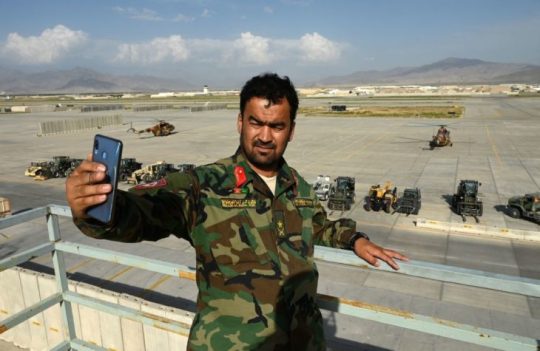
The U.S. choice came with costs attached to each decision. With staying, the cost was potential U.S. troop casualties and a fear that things would not change on the ground. With leaving comes the cost of a deeper conflict in Afghanistan and a backsliding of progress made there over the past two decades. In many ways, the costs of staying seem shorter-term and borne by the United States, while the costs of leaving will be predominantly borne by Afghans over a longer time horizon. Yet, even if those costs seem remote now, history tells us that they will be blamed on the United States.
Biden perhaps reflective of history of Americans getting into quagmires abroad didn’t want to be seen exerting time and energy for a losing cause. His decision also reflects his administration’s foreign policy for the American middle-class paradigm, which focuses on domestic considerations over international ones (and is this so different from Trump’s “America First”? No, it is not). The irony, though, is that the American middle class largely doesn’t care about Afghanistan - their ambivalence gave way to support for this decision once it was announced, but it wouldn’t be hard to visualise the public approving of a scenario that kept a couple thousand troops there for a while longer.
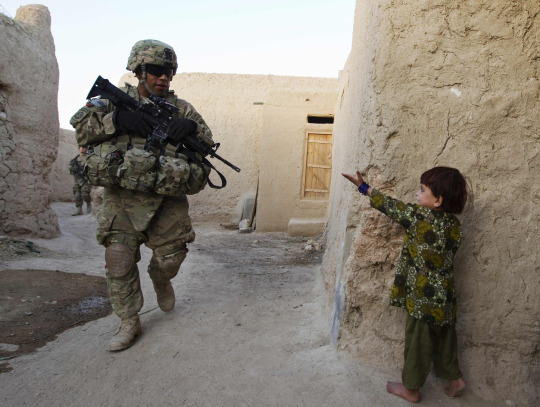
What’s perhaps most disturbing is the narrative the president has presented along with the rationale for withdrawal: that America went to Afghanistan to defeat al-Qaida after 9/11, that mission creep led America to stay on too long and, therefore, it is time to get out. This takes an incomplete view of U.S. agency in the war in Afghanistan. The narrative implies that the civil conflict in Afghanistan today did not originate with America - that this more than 40-year war began with the Soviet invasion of Afghanistan in 1979, preceded America’s interference in Afghanistan, and will follow our departure.
The fact of the matter is that, by beginning the campaign in Afghanistan in 2001 and overthrowing the Taliban, who were then engaged in their draconian rule, and installing a new government, we western allies began a new phase of the Afghan conflict — one that pitted the Kabul government and the United States/Britain/NATO against the Taliban insurgency. The Afghan people did not have a say in the matter. That we allied powers are leaving Afghan women, children, and youth better off in many ways after 20 years is due to us, and we should be proud of that. But that we are leaving them mired in a bloody conflict is also due to us, because we could not hold off the Taliban insurgency, and we must all reckon publicly with that.
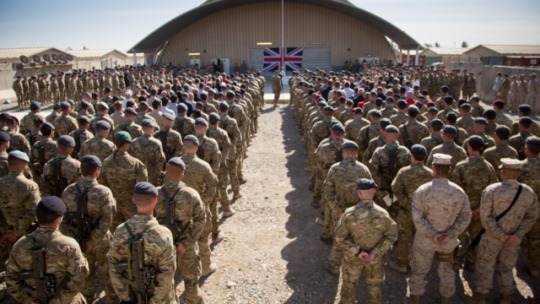
I have to ask myself why did we fail?
I’m only speaking about us Brits now as I’m sure you have your own thoughts as an ex-Marine officer of what you thought of the American military effort. Yes, I’m copping out of really bashing the yanks because first, I have too much respect for those fantastic American service men and women I did have the privilege to fight alongside with; and second, we Brits have nothing to crow about as we fucked up in lots of ways too, and to make things worse, we should have known better given our imperial history with Afghanistan.
The seeds of our failure in Afghanistan lies in not learning from history. We didn’t have a mission that was properly defined nor did we have a strategy that was clear, coherent, and easily communicated to both its fighting men and women as well as to the British public.
Were we there to get our hands bloody and to root out and destroy extreme Islamist terrorists or were we there to indulge in state building out of some idealistic notions of liberal humanitarianism? This question was at heart of our failure within our government and also within the British army as well as our relations with America and our NATO allies and finally the Afghans themselves.
Although never colonised in the same manner as other central and south Asian countries, the modern Afghan state is very much a creation borne out of great power rivalry. A land occupied by a number of different ethnic, linguistic and religious groups, it is a country whose borders were defined by, and whose sense of national identity was forged in response to western great power competition. Its geopolitical position - landlocked, mountainous, and surrounded by past great powers and present regional rivals - lends Afghanistan a dual role of geographic obscurity and great strategic significance, and has as such frequently been treated as little more than a buffer state between empires and a proxy of local powers. Its shared historical border with Russia and British India made it an object of imperial intrigue and, by consequence, has been subject to five European military interventions in the last 175 years.
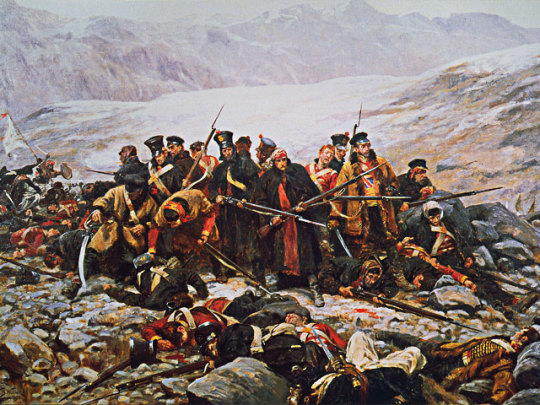
The first three interventions of these occurred during the era of ‘the Great Game’ in the nineteenth and early twentieth centuries, in which Britain and Russia (latterly the Soviet Union) competed for influence and control over Afghan politics in order to protect their respective imperial holdings in India and central Asia.
The fourth and fifth interventions, ranging from the late 1970s to the present day, similarly involved attempts by Soviets and then by an American-led international coalition to remove political leaders acting against their interests and to protect their favoured candidates.
The unifying feature of all these conflicts was the idea of Afghanistan as the site of potential threats to the interests and security of more powerful states.
Britain’s legacy in Afghanistan in particular set the tone for the country’s historical pattern of conflict and political contestation, fuelling both the intermittent emergence of Afghan national consciousness and a fractious political lineage that saw thirteen amirs in just eighty years. Interventions by the Empire during the Great Game set the conditions for the assassination of ostensibly national leaders by their compatriots (Shah Shuja Durrani in the First war) or their exile by the British (Shere Ali Khan and Ayub Khan in the Second).
Despite the British achieving their aim of protecting India in the second and third conflicts by maintaining Afghanistan as either a pro-British buffer state or as a neutral party, the Afghan narrative tends to emphasise successes such as the massacre of British forces retreating from Kabul to Jalalabad in 1842, the defeat of British and Indian forces at Maiwand in 1880, and the gaining of sovereignty in foreign affairs in 1919.
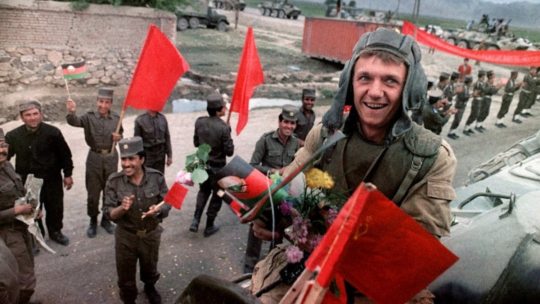
Soviet intervention in the late 1970s and 1980s further buttressed this identity of resistance, and the failure and ultimate overthrow of the Communist-backed Najibullah government, as well as the collapse of the Soviet Union shortly after their drawdown from Afghanistan, led to a sense amongst the victorious mujahidin of the country as the ‘graveyard of empires’.
Afghanistan’s modern history should thus be seen as inextricably linked to the ebbs and flows of great power politics. Each intervention exacerbated extant internal power struggles between rival elite individuals and groups vying for nominal control over the country. Foreign intervention in Afghanistan was met on each occasion with fierce resistance from tribal militias coalesced around religion; as has been remarked upon by one historian of the country, the threat of external domination has been one of the few means of uniting its disparate population around the concept of an Afghan ‘nation’, and in most cases this shared sense of identity cohered around religion, not nationalism.
Indeed, the presence of intervening powers and the development of the Afghan state may be seen as mutually supporting: whilst most Afghan leaders throughout the last two centuries have asserted their sovereignty over the country, the reality has in most circumstances been one of competing tribal chiefs and/or ‘warlords’ rather than a single dominant leader.
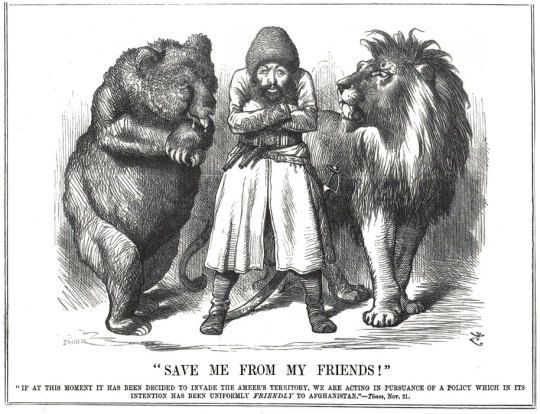
Where leaders have managed to cohere the disparate tribal and ethnic groupings of the country under one banner - most notably under the regime of Dost Mohamed Khan (1826-1839, 1845-1863) – this was due in large part to their diplomatic abilities of compromise and co-optation with Afghanistan’s regional power- brokers. In other cases, such as that of the reign of Abdurrahman (1880- 1901), power was maintained by an unflinching ‘internal imperialism’ and the use of punitive force against rebellious factions.
The challenges of maintaining and projecting centralised power in Afghanistan allow us to see the relationship of its leaders with world or regional powers in the last two centuries as one of mutual exploitation. Throughout the Great Game and the Cold War, whilst the British/Americans and Russians/Soviets would use threats and bribes (and occasionally force) to compel Afghan rulers to comply with their geopolitical needs, Afghan rulers themselves often deftly manipulated those powers to maintain and extend their own power.
The pattern followed by Afghan leaders from the nineteenth century to the present day is remarkably similar in the respect that most have relied upon a rentierist economic model, seeking external aid in order to sustain the cost of security and administration. The plan of modern rulers was to warm Afghanistan with the heat generated by the great power conflicts without getting drawn into them directly. Abdurrahman, for example, used British subsidies to fund his military campaigns against rebellious factions; the Musahiban rulers of the mid-twentieth century used American capital to develop its nascent economic infrastructure and Soviet finance to bolster its armed forces; and, following the overthrow of the last royal leader of Afghanistan, Mohamed Daoud, in 1978, the quasi-communist leadership of Babrak Karmal, Hafizullah Amin, Nur Muhammad Taraki, and Mohammad Najibullah during the late 1970s and 1980s relied in the main on Soviet money and military assistance in its ultimately failed attempt to implement socialist policies and put down the American, Saudi and Pakistani-backed mujahidin.
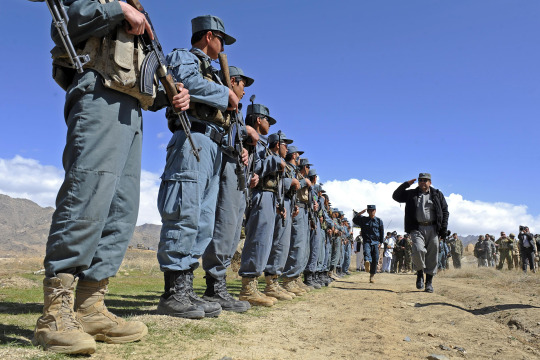
These trends continued into the post-Cold War period in respect to both the Taliban movement (essentially directed and funded by Pakistan), the Northern Alliance (funded largely by former Soviet central Asian states) and the regime of Hamid Karzai (maintained in economic and military terms by the American-led, NATO-operated International Security Assistance Force and the wider international community). In the former cases, occurring in the main in the period of civil war between 1992 and 2001, rentierism was limited to the maintenance of proxy parties and the continuation of conflict.
By contrast, the ISAF mission bore similarities with the Soviet-backed socialist regimes of the 1980s, insofar as it focused huge amounts of capital and military resources on stabilisation and state-building efforts. Both intervening parties made the error of ignoring Afghanistan’s political history and focused their efforts on bolstering the authority of a centralised state, both promoted policies that were deemed ‘universal’ in their application and were, unsurprisingly given such hubris, vulnerable to accusations by Afghan opposition to being alien and imperialistic ideologies, and both expended enormous amounts of blood and treasure in order to sustain the regimes they supported.
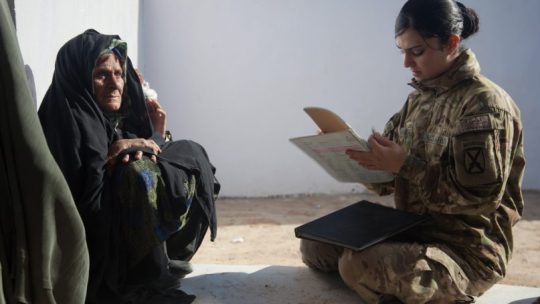
The UK’s struggle to locate a coherent strategy for Afghanistan should, therefore, be seen firstly in the light of the historical problematic of Afghan state-building. This is important in narrative terms because difficulties of defining strategy imply similar challenges in explaining strategy. As with its efforts to ‘think’ strategically, Britain’s ability to explain the strategy(ies) for the war in Afghanistan have been frequently criticised by various commentators. The most strategically debilitating aspect of the Afghan campaign has always been the incoherence of the mission’s purpose; indeed the question ‘‘why are we in Afghanistan?’’ has never really been settled in public consciousness. The international community massively underestimated the difficulties of state-building and greatly overstretched themselves in the commitments made to Afghanistan, and that they did so because ‘strategies’ for Afghanistan rested on assumptions of the universal applicability of liberal state-building.
The international community from the start (meaning from the Bonn Conference of late 2001) fundamentally misunderstood the nature of an Afghan society deeply ravaged by decades of conflict, and failed to foresee the malign effects state-building ventures would have on the country. Specifically, the Bonn Conference, which set out the parameters of the post-invasion Afghan state, implemented a centralised state system onto a state whose experience of such was limited, and where the success of such a system in extending its authority beyond the major cities was predicated on coercion and the use of force.
Historically this has rarely been a credible option for Afghan rulers or their international backers, and was even less so under the self-imposed restrictions of liberal war-fighting and state-building. Rather, re-creating a centralised state required Afghan and international actors to enter into the same methods of co-optation and compromise as those of the past; in necessitating these kind of measures – as opposed to implementing a looser, federal system of governance – the centralisation of the Afghan state paved the way for a reconstitution of a ruling order based on tribal elements and ‘strongmen’. This produced something of a paradox for state-builders, as the creation of a strong, central state capable of implementing liberal policies across Afghanistan came at the cost of entering into alliances with ‘warlords’ known for their illiberal and coercive political approaches and illicit economic activities.

Another unintended but unavoidable consequence of centralised state-building identified by scholars is the re-constitution of the rentier state in Afghanistan. Post-Bonn, Afghanistan returned to its historical norm of maintaining the state via the extraction of external security and development rents, without which it would almost certainly implode due to the ruinous state of its economy and taxation system. Studies have shown that his new rentierism differed from previous patronage systems at the state level insofar as it was fuelled by an unprecedented influx of capital and resources into the country. This had the effect of introducing regulated systems of ‘neo-patrimonalism’, where departments were to be distributed as rewards to the various factions that took part in the Bonn conference, and there had to be enough rewards to go around.
In other words, the structure of the post-invasion Afghan state was, to a great extent, defined not by the demands of good governance, the needs of the country or the demands of post-conflict stabilisation and reconstruction – the purposes for which the centralised model was chosen to promote – but rather by the first-order need to avoid the derailment of the centralised state by co-opting regional power brokers.
Because of the imperative of shoring up a nascent state by securing support from potential competitors, the gulf between the ends of liberal state-building and the illiberal means required to facilitate its functioning can therefore be seen to a certain extent as inevitable.
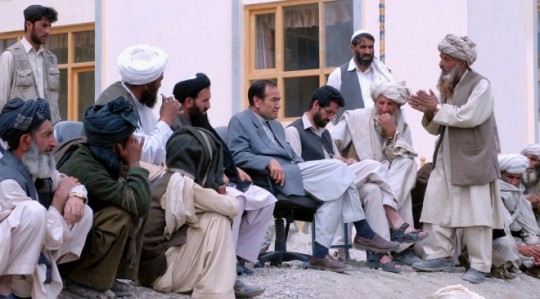
A major issue, however, was that the patrimonial linkages created by the state for its regional proxies was not comprehensive, as it did not extend to the Taliban’s Pashtun heartland and, as such, fuelled resentment and alienation as much as they placated and co- opted extra-state power brokers. Key players in the Northern Alliance - the primarily Tajik opposition to the Taliban - received prestigious posts within the state, whilst the predominantly Pashtun Taliban were themselves excluded from such arrangements. Because those rewarded by the state tended to be given ministerial or governorial roles in cities, the conflict dynamic tended to reflect an urban – rural divide similar to that of the Soviet occupation. Along this reading, the neo-Taliban insurgency was in many ways a product of the political miscalculations and deficiencies of post-invasion state- building activities.
Given this starting point, such a view concludes that the strategic problems encountered by the international community in Afghanistan were, to a large degree, problems created by (or at the very least exacerbated by) the state-builders themselves. They misread Afghan politics in a way that reflected their own philosophical assumptions about the state and society.
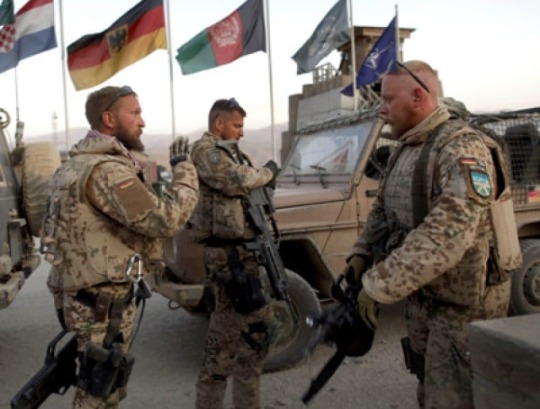
Strategy in Afghanistan suffered because the coalition effort, comprised of multiple national actors and the United Nations, rarely took on the form of a unified effort. Part of the reason for this was a divergence of opinion between actors as to the ultimate purpose – counter-terrorism or state-building – of the intervention.
In the first years of the Afghan campaign, the United States’ Bush Administration remained staunchly opposed to what it called ‘nation building’ and opted instead to pursue a policy of capture- or-kill missions against suspected terrorists. For the United Nations and most of the United States’ European NATO allies, however, state-building was considered a necessary element of any counter-terrorist strategy. This difference of opinion was manifest from the start by the creation of two parallel missions – the US-led, counter-terrorism-focused Operation Enduring Freedom (OEF) and the stabilisation missions of the European Union, United Nations (United Nations Assistance Mission in Afghanistan (UNAMA)) and NATO (International Security Assistance Force (ISAF)) – engaged in seemingly incompatible aims of military prosecution and peace building.
Opinion on the impact of this dual approach varies. Some scholars have noted, along lines similar to those critiquing the state-building efforts of the international community that the approach taken by the UN, EU and ISAF was too ambitious, naïve and unrealistic, and therefore bound to fall short of their liberal political and economic goals. Both Europe and these international agencies ignored the necessity of paring down the international community’s state-building efforts to core, security-centric capacity building within the Afghan National Security Forces. But of course one can make the counter argument, as many have of course, that on the contrary it was the insufficiencies of state-building approaches vis-à-vis OEF’s counter-terrorist approach that led to subsequent failures in UN and ISAF efforts; specifically, that a disproportionate focus on counter-terrorism missions meant that opportunities of peace- building were irreparably compromised.
Within NATO there was a division not just of opinions but also one of mission relating to different political perspectives about the purpose of the Afghan mission and its ultimate referent object – whether it was primarily about the interests of the coalition member states or concerned in the main with Afghanistan itself – and, from that, the methods to be employed in pursuit of one or another objective. This was not merely a debate bounded by strategic necessity, however; rather, such debates stemmed as much from institutional disagreements over who would or could do what in Afghanistan, which in turn arose from the differences in political constitutions and cultural attitudes towards counterinsurgency and counter- terrorism.
These ‘national caveats’ or ‘red cards’ of participation created significant problems for NATO in Afghanistan, both political, in terms of the relations between states and the abiding sense amongst some that others were ‘free-riding’ on the collective security system and, and strategic and operational, in the sense that command-and-control capabilities and cohesion between forces were limited by the engagement restrictions placed on certain armed forces. Indeed, the disproportionate burden placed on combat-oriented states like the United States, the United Kingdom, and several new member states in Eastern Europe led to political statements denouncing Europe’s perceived transgressors of collective security participation; former US Defence Secretary Robert Gates argued, for example, that NATO had effectively become a ‘two-tier alliance’ ‘between members who specialise in ‘soft’ humanitarian, development, peacekeeping and talking tasks and those conducting the ‘hard’ combat missions - between those willing and able to pay the price and bear the burdens of alliance commitments, and those who enjoy the benefits of NATO membership... but don’t want to share the risks and the costs’.
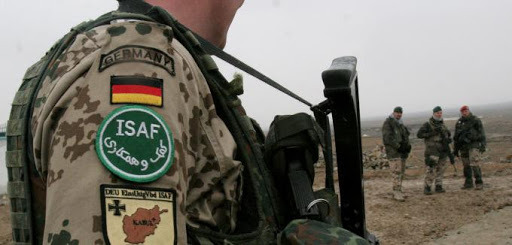
A lack of strategic unity was the natural consequence of a structural compromise that produced two distinct strategic authorities that were, in many ways, competing with one another. Along similar lines to the political arrangements between the Afghan state and its regional proxies, the NATO alliance structure can be seen (and evidently is seen by officials such as Gates) as patrimonial: states participated on the basis of fulfilling their own interests and along operational lines that were complementary to those interests, for the purposes of securing an alliance structure that accommodated all participants ahead of the imperative of creating a coherent strategy for stabilising Afghanistan. As with the neo-patrimonialism of the Karzai regime NATO’s efforts would be dictated by the limitations imposed upon it by circumstance.
Thus, in the cases of Afghanistan’s and the international community’s internal political dynamics, strategy was confined by the structure of the Afghan state and society, the structure of the international community and NATO, and the interplay between those structures. The implication here is that the agency required for the possibility of a workable strategy may have been illusory from the start.
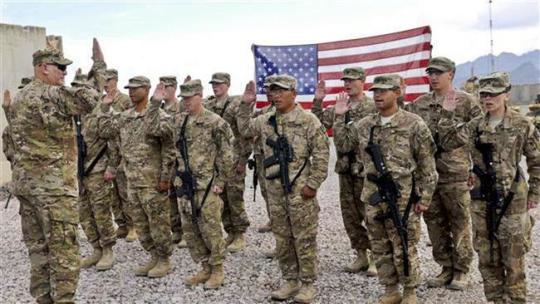
Leaving Afghanistan was never going to be pretty, but the latest turn is uglier than expected.
No one quite expected the speed of collapse within the Afghan National Army to hold of attacks of the Taliban. I don’t think it’s do with the lack of training or their professional skills is lacking (though there may be some truth in it). A big driver in the collapse is the money for wages, food and medical care for troops is syphoned to Dubai, so the Afghans who want to fight, and there are quite a few who hate the Taliban, get less replenishment than the 6th army in the last weeks of Stalingrad. They have arms, ammo and boots for this season only and that is it. Both money and morale are in short supply for these soldiers.
If I was a trained soldier in the Afghan National Army I would desert. I would say to them abandon the fixed defences these ‘ferenghis’ (foreigners) have gifted you and move to the hills and seek refuge with your tribal clan, who will be glad of the arms and experience you bring. Or get over the border if you are lucky to be in the North, if in the West you hire yourself to the Narcos in the badlands on the Iran border. Most other places it is either a last stand or defection, your Government and their relatives have already got their planes fuelled up in Kabul ready to move to their villa complexes in the UAE.
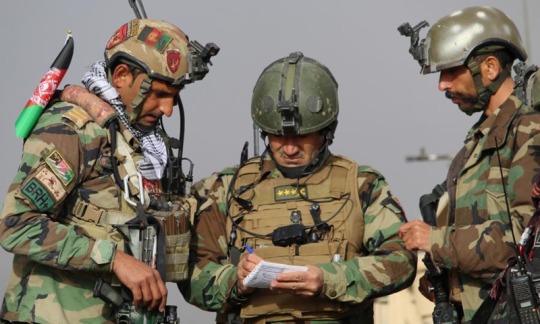
I’m being a trifle cynical but for good reason. Everyone who has been to Afghanistan sees the veil lifted on the corruption of aid and how the elites protect themselves ahead of defending the masses who bear the brunt of the bloodshed.
The corruption has been endemic from the get go, but the international community ignored it all for 'progress'. Any Afghan politico you hear on the media complaining about the West abandoning Afghanistan has at least $30 million parked in Dubai that should have gone to the soldiers, teachers, doctors, builders etc.
As spectacular as the collapse of the Afghan National Army has been it’s been even more scarier seeing how swift the Taliban has been in taking over vital provincial areas through propaganda, civilian intimidation, and rapid attacks. One by one, the Taliban has been taking over areas in a number of provinces in northern Afghanistan in recent weeks. The Taliban says it has taken control of 90 districts across the country since the middle of May. Some were seized without a single shot fired.
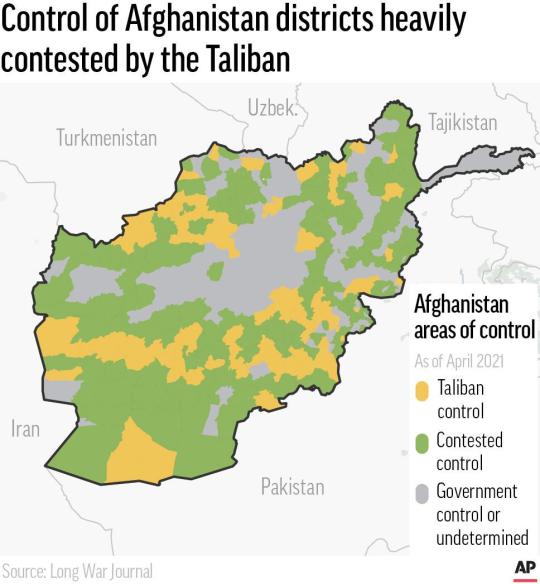
The UN's special envoy on Afghanistan, Deborah Lyon put the figure lower, at 50 out of the nation's 370 districts, but feared the worst was yet to come. Most districts that have been taken surround provincial capitals, suggesting that the Taliban are positioning themselves to try and take these capitals once all foreign forces are fully withdrawn. On a map, it's easy to see the point Lyon is making. A stark example is Mazar-i-Sharif, the biggest city in the north and a significant power centre in its own right. It was the rock upon which the Northern Alliance fought against the Taliban.
It is significant the Taliban are kicking off this offensive in the north, not their heartland in the south and east. The north was the toughest part of the country for them to crack last time. Their expectation is if they have victory there, success will flow much easier in their traditional homelands further south.
The strategy of taming the north extends to emasculating and profiting from trade routes to neighbours. On Monday night they captured the important border town of Shir Khan Bandar, Afghanistan's main crossing into Tajikistan. Earlier in the day, top Tajik government officials had met to discuss concerns about the growing instability next door. There is no indication that the Taliban intend to take their fight north of the border, but in the past Tajikistan has been a vital conduit for supplies flowing to the militants' northern enemies.
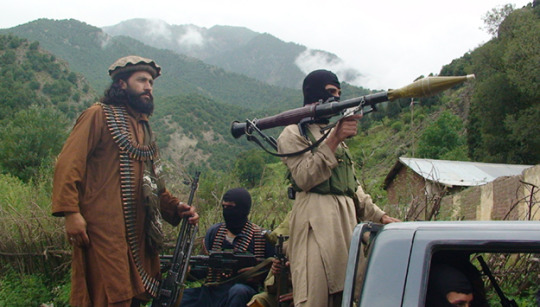
The last time the Taliban controlled the city was 20 years ago, when they left hundreds of captives in steel trucking containers to suffocate and die in the scorching desert heat. Now, the militants are back at the city gates once again, as part of a lightning offensive against Afghan government forces that has set alarm bells ringing from Kabul to Washington. So it should worry us all where will all this lead to.
America's drawdown seems to be the game changer. The Taliban have been beaten back several times in recent years, notably from Kunduz in 2015. The Taliban captured it briefly before US airstrikes were called in. Civilian casualties were high but the militants were driven out. The militant group has never been able to withstand the heavy US and NATO air assaults backing Afghan ground forces, but now the US and NATO are leaving, so is much of the threat of sophisticated and sustained air power. And the Taliban are well aware of this.
It seems to me behind the choice of withdrawal by the Biden government lies a bigger assumption that drives that choice. That is the Taliban militants' perceived desire for international recognition. This has been the mantra underpinning the American exit. The logic of the American argument has been simple: The Taliban wouldn't renege on their agreements with the US because they crave international acceptance. The events of this past week and more appear to blow a hole in that assumption.
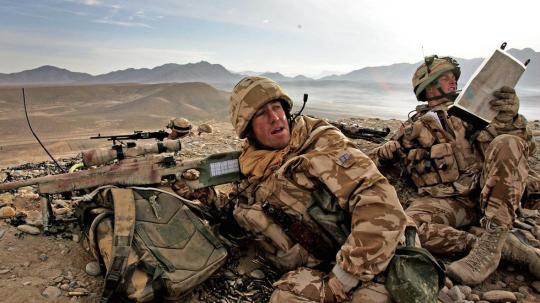
Another assumption that’s currently being blown out of the water is the US establishing some presence outside of Afghanistan so that if it needs to intervene again to combat terrorism or flush out militants then it can do so from the safety of a neighbouring country. But so far no country has come forward to reciprocate. And why would they? Like the Afghans, no one likes foreign troops with boots on the ground in their country. Only the central Asian republics and possibly Pakistan would come close to allowing that but there would be a political cost those governments would pay with their people. Moreover by welcoming the Americans in, they also allow the militants to target that country too.
Another assumption is the nature of the Taliban support and links to terrorist groups. The U.S. may not face any serious post-withdrawal Afghan support of extremist threats to the United States, even if the Taliban does take over. It is all too true that the Taliban continues to talk to the remnants of Al Qaeda, as do elements of the Pakistani military. It is unclear, however, that these remnants of Al Qaeda focus on attacks on the U.S., and the Taliban does seem to oppose ISIS. It is also unclear that the Taliban will host other extremist movements that focus on attacking the U.S. or states outside the region.
It is unclear that any key element of the Taliban has an interest in such attacks on the United States. Even Al Qaeda now focuses largely on objectives inside Islamic countries, and it is unclear that some other major extremist force will emerge in Afghanistan that do not focus on regional threats and on taking over vulnerable, largely Islamic states.
At the same time, one needs to be careful about the assumption that the U.S. can defeat any such threats by launching precision air and missile strikes against extremist targets. It is unclear that the forces in Afghanistan involved in any small covert attacks on the U.S. will be easy to target and cripple if they do emerge. The Taliban is unlikely to tolerate major training camps and facilities for extremist forces, and any such strikes will present major problems for the U.S. if the extremist threat consists of scattered small facilities and small expert cadres that shelter among the Afghan population.
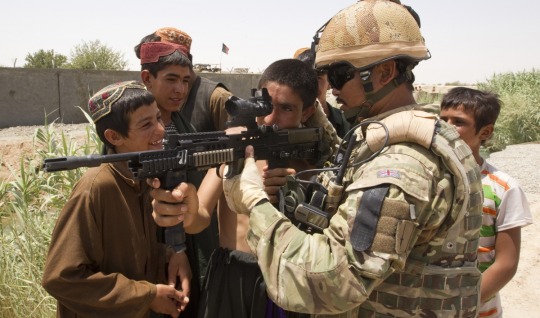
It is also far from clear that more intense U.S. air attacks on Taliban forces from outside Afghanistan will have any decisive effects. The loss of limited numbers of Taliban fighters as well as some key Taliban leaders and facilities will not offset the pace of their victories in the countryside or enable the central government to survive. A continuing U.S. ability to target and kill some key Taliban leaders and fighters also does not mean that the risk of such strikes will deter future Taliban willingness to let small, extremist strike groups conduct well-focused, well-planned strikes on U.S. or allied territory, especially if such groups in Afghanistan sponsor attacks on the U.S. or it strategic partner by strike units or cadres based in other countries.
At the same time, it does seem more likely that the Taliban, and/or any independent extremist groups, will focus largely on Iran, Pakistan, Russia, China, and the other “-Stans.”

Going forward I think we need to re-evaluate many of our assumptions about the war in Afghanistan.
The objectives of the Authorised Use of Military Force approved by the US Congress in 2001 have long been accomplished. Once Osama bin Laden was killed in Operation Neptune Spear in 2011, the last element of the AUMF was met. The American and British mission in Afghanistan was complete. But America and Britain did not leave because we wanted to do a spot of state building to curb the spread of militant islamist terror. That was a mistake as it turned out.
Post-Neptune Spear, The American, the British, and their allies’ conventional mission should have been ended, adopting instead a laser focus on intelligence collection and offensive special operations to prevent al-Qaeda (or any terrorist organisation) from re-establishing safe havens and training areas.
What was needed for an acceptable ‘victory’ and a ‘saving face’ withdrawal was to embrace the use of Afghan Militia Forces the same way the Allies did for our initial entry way back in 2001.
In 2001, Western powers won the initial military engagement in 42 days using special operations forces with local and regional allies - we need to return to this format - and through a combination of special operations and specific information operations efforts, regaining the high ground and influence over ‘centres of gravity’. The issue is not the number of troops, but the mission of the forces there. Once the mission is defined, the number of forces needed would be clear.
It has never been about the number of troops - it’s been about the lack of an achievable mission assigned to our forces in Afghanistan.
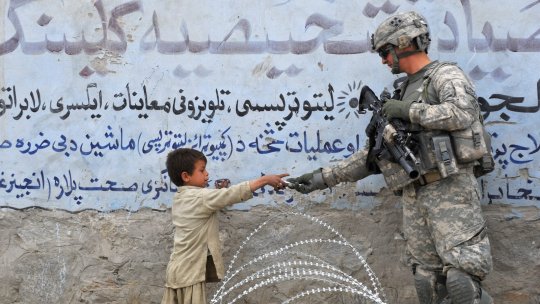
The US engaged in ‘nation-building’ for the wrong reasons - and has seen bad results. We installed Hamid Karzai, served as his praetorian guard to protect the new central government and abandon our AMF allies and attempted to build a large, bulky, expensive and ineffective Afghan National Army - a force that is now evaporating before our eyes. It was folly.
Americans will never make the Afghan people more like them - nor will they be able to instil what my American colleagues used to fondly refer to as ‘a Jeffersonian democracy’ in Afghanistan. That day may come but only when the Afghan people wish it to be so. Lest it be forgotten Americans sought independence in 1776; the Afghan people seek self-reliance and independence from foreign influence. This is their defining historical DNA: escape from any outside control.
The Afghan people are not ungoverned, they are self-governed - with no tradition of central democracy and no desire for our version of democracy or ‘prosperity’. By pushing ‘prosperity’ we had become targets for both the Afghan government and the Taliban. This has ended, but we must draw a distinction between the end of nation-building and the continuation of our own interests in Afghanistan and the region.
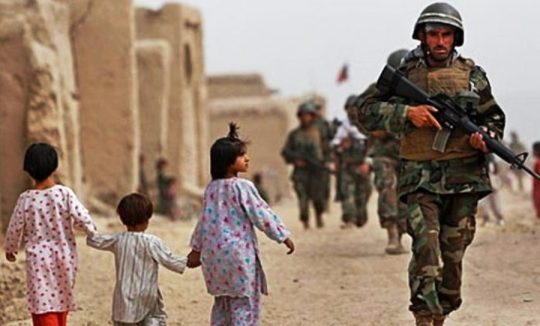
It is time to adopt a practical policy based on what will work and is in our allied interests, rather than by funding the aspirations of progressive politicians who have no real understanding of Afghanistan.
First, we must establish a clear post-‘state-building’ strategy - with achievable objectives. We must return to the policy and operational format we know will work - cooperation with Afghan tribal leaders and militia. This type of force was used to achieve the initial victory in 2001. Empowered warlords and regional leaders were the force multiplier that worked as the Afghan Militia Forces - and can again, in partnership with our Special Operations Forces work now. Intelligence collection and limited military operations should be our focus.
There is no way around it. One has to play the Great Game. Think tribal rather than central. Afghan nationhood is a liberal Western wet dream.
The central government is weak and corrupt just like all the other rulers of the past. The Afghan National Army is not as strong as it is on paper. It can hardly prop itself up rather than any government. Most of the Afghan National Army troops have stronger tribal loyalties than to the concept of a nation. Since the tribal chiefs play both sides to hedge their bets, it's no wonder 'their' people do what they're told. The Taliban know this because that has always been the Afghan way, so the tribes go with them. Provided the Taliban honour their promises to the tribal chiefs, the Taliban can do what they want.
On one hand, the tribes won't now be too bothered by central government and have a large pool of Western-trained troops to prop them up. On the other hand, they now have to do business formally with the Taliban again. Largely in order to get their hands on Western-supplied aid that will surely follow after the Americans leave.
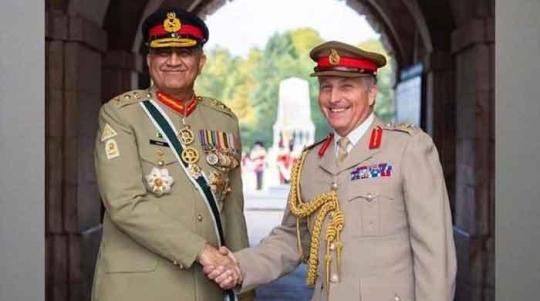
Second, we must accept the reality of Pakistani influence in Afghanistan - and work with the Pakistanis to counter al-Qaeda and the other militants now attacking Pakistani targets within Pakistan. Pakistan has made great advances in securing the tribal areas on the other side of the border and they have always been the de facto control of much of the Taliban force capacity, such as the Haqqani network. Working with Pakistan is the best option within the current circumstance.
‘Endless wars’ are not an American value. The use of the US military must only be used in response to genuine threats, when American interests are at stake or lives in danger. Withdrawal of conventional military forces and discontinuing nation building is in the US interest: leaving Afghanistan is not.
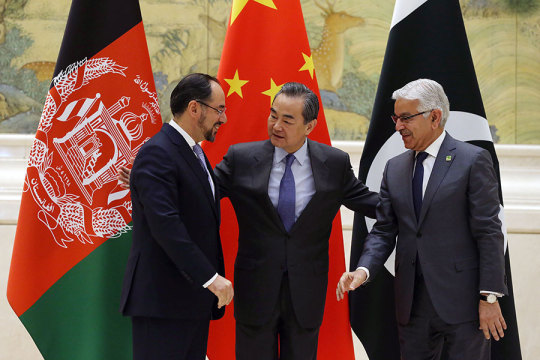
Third, make Afghanistan China’s problem. Afghanistan could easily become a hotbed for growing Islamic extremism, which would to some extent affect stability in Xinjiang.
It is not without reason that Afghanistan is known as the “graveyard of empires”. The ancient Greeks, the Mongols, the Mughals, the British, the Soviet Union and most recently the US have all launched vainglorious invasions that saw their ambitions and the blood of their soldiers drain into the sand. But after each imperial retreat, a new tournament of shadows begins. With the US pulling out of Afghanistan, China is casting an anxious gaze towards its western frontier and pursuing talks with an ascendant Taliban. The burning questions are not only whether the Taliban can fill the power vacuum created by the US withdrawal but also whether China - despite its longstanding policy of “non-interference” - may become the next superpower to try to write a chapter in Afghanistan’s history.
Beijing has held talks with the Taliban and although details of the discussions have been kept secret, government officials, diplomats and analysts from Afghanistan, India, China and the US said that crucial aspects of a broad strategy were taking shape. An Indian government official said China’s approach was to try to rebuild Afghanistan’s shattered infrastructure in co-operation with the Taliban by channelling funds through Pakistan, one of Beijing’s firmest allies in the region. China is Pakistan’s wallet.
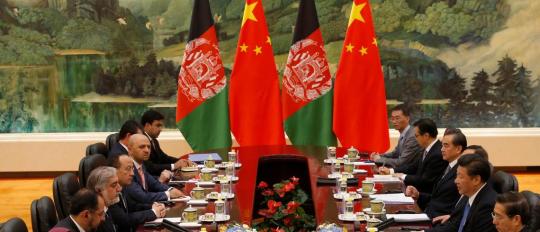
It has been reported that Beijing has been insisting that the Taliban limit its ties with groups that it said were made up of Uyghur terrorists in return for such support. The groups, which Beijing refers to as the East Turkestan Islamic Movement, are an essential part of China’s security calculus in the region. The ETIM groups were estimated by the UN Security Council last year to number up to 3,500 fighters, some of whom were based in a part of Afghanistan that borders China. Both the UN and the US designated the ETIM as terrorists in 2002 but Washington dropped its classification last year. China has accused the ETIM of carrying out multiple acts of terrorism in Xinjiang, its north-western frontier region, where Beijing has kept an estimated 1m Uyghur and other minority peoples in internment camps.
In a clear indication of Beijing’s determination to counter the ETIM, Wang Yi, China’s foreign minister, exhorted counterparts from the central Asian states of Kazakhstan, Uzbekistan, Kyrgyzstan, Tajikistan and Turkmenistan this year to co-operate to smash the group. “We should resolutely crack down on the ‘three evil forces’ [of extremism, terrorism and separatism] including the East Turkestan Islamic Movement,” Wang said in May according to Chinese news media which I follow.
The importance of this task derived in part from the need to protect large-scale activities and projects to create a safe Silk Road. Silk Road is one of the terms that Chinese officials use to refer to the Belt and Road Initiative, the signature foreign policy strategy of President Xi Jinping to build infrastructure and win influence overseas.
An important part of China’s motivation in seeking stability in Afghanistan is protecting existing BRI projects in Pakistan and the central Asian states while potentially opening Afghanistan to future investments. China would have to more actively support efforts to ensure political stability in Afghanistan. So make them work for it. Western powers need to leverage China’s problems in Xinjiang to be more active in Afghanistan.
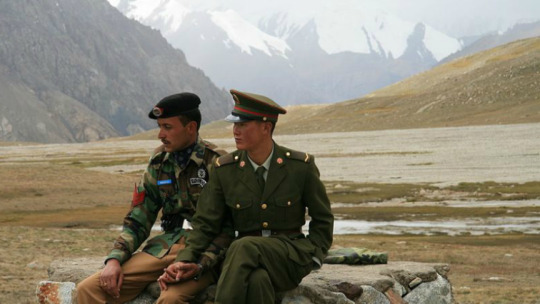
International media outlets and intelligence agencies worldwide have been circulating reports pointing toward the creation of a Chinese military base in the Wakhan Corridor of Afghanistan’s Badakhshan province for a while now. Although China has not embarked on militarisation programs on foreign soil historically, and has profusely denied the rumours about building an Afghan “mountain brigade,” China’s first overseas military base in Djibouti provides an example of China’s newly adopted strategy of leveraging economic influence to further its strategic objectives. There’s even some chatter amongst Chinese officials that Beijing may entertain the idea of being part of a future UN international force should one be needed in Afghanistan (a bad idea but hey, let China find out first hand for itself).
The Afghan government was able to maintain a measure of stability largely because of the superiority of US air support. The drones, gunships, helicopters and heavy air artillery were unmatched by the Taliban. But when the US leaves, that advantage will evaporate. China’s imperative to create overland trade routes to Europe and the Middle East may draw it inevitably into Afghanistan’s domestic strife.
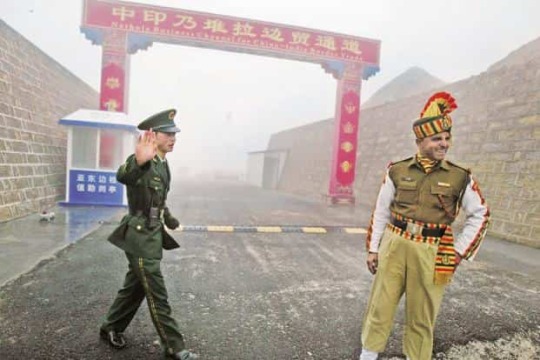
Of course China’s forward policy in the Wakhan Corridor needs to be assessed with a critical eye. Although on one level it seems to be motivated primarily by the threat of radicalisation, China’s interest in the region is also contingent on the strategic role that Afghanistan is capable of playing in the larger scheme of things. Despite China’s vehement denial, there seems to be sufficient evidence available indicating a definite military build up in the region, which provides China with an opportunity to showcase its ability to transform into a balancing force in the regional dynamics. I think that is a trade off that both America and Europe can afford to concede under the current circumstances.
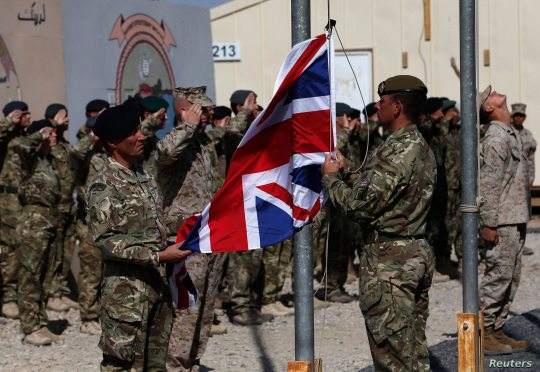
In conclusion In the face of failure, there is an impulse to move on and not ask “what led to this?” But to avoid a reckoning with our follies is to risk their repetition, or worse.
it is probably too late to salvage either the civil or military situation in Afghanistan. It almost certainly is too late to salvage it with limited in-country U.S. forces, outside U.S. airpower and intelligence assets, and with no real peace agreement or functional peace process. Limited military measures are not the answer, and neither is simply reinforcing the past processes of failure. Tragic as it may be, withdrawal may not solve anything and may well make conditions worse for millions of Afghans, but reinforcing failure is not a meaningful strategy.
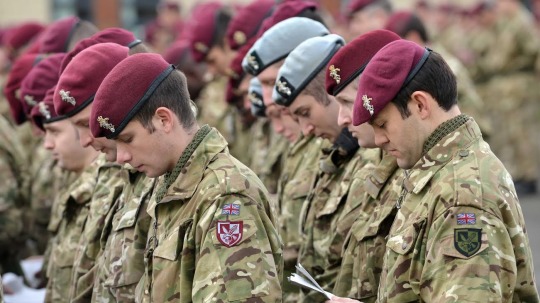
I do feel strongly that both the American and British governments must establish a clear path of redemption so that those who served and the families who sacrificed loved ones know that their loss was not wasted. At the same time our civilian governments must limit missions to intelligence collection and counter-terrorism missions that will prevent the metastasis of al-Qaeda or Isis in the region should the Afghan government fall. How we balance these two is going to be very interesting to follow in the next chapter in Afghanistan’s tortured history.
I apologise for the length of this post. This has been a hard post to write because of the subject matter and the many conflicted emotions and memories I have of my time in Afghanistan. I wish I had all the answers but I suppose the beginning of wisdom would be to know how to ask the right questions. Because we didn’t ask the right questions when we went in, we ended up making a real mess of it.
There is an understandable desire to bring all our allied troops home safe and that not another life is lost there. Yet I doubt this policy of withdrawing all troops will bring peace to anyone, not to us and most of all, the Afghanis themselves. As always in war it is the native population that will bear the real cost of war, in this case women, girls, and others brutalised under Taliban rule. What lies for them if the Taliban regain power to govern the country in their image is something I care not to imagine but retain a deep foreboding of their continued suffering. Ordinary Afghanis just want a respite from war and have a chance to live in peace, but without having us foreigners or the Taliban around. It is hard to imagine that happening at all. Our desire to save our soldiers’ lives set against ordinary Afghanis being left at the mercy of the Taliban is one of those humbling and brutalising trade offs that any war can only offer.
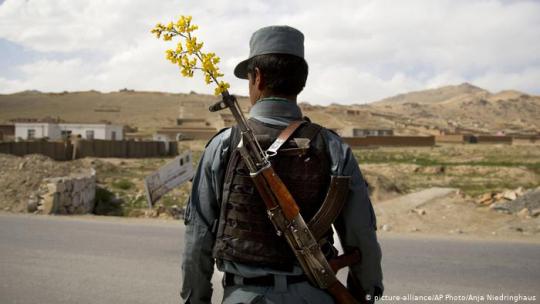
Near the end of his famed novel, The Great Gatsby, F. Scott Fitzgerald described two of his privileged characters, Tom and Daisy, as “careless people” who “smashed up things and creatures” and then “retreated back into their money or their vast carelessness” to “let other people clean up the mess they had made.”
That description applies to America as a whole but also to we Brits and other Europeans, especially when we tire of a misguided war. Americans and we Brits are a careless people. In both Iraq and Afghanistan, we smashed up things and human beings with abandon, only to retreat into our materialism. No scratch that, returning soldiers retreated into themselves struggling with PTSD whilst the rest of our citizenry carried on with their own material struggles and their insipid culture wars. The point is we always leave others to clean up the mess in a very bloody fashion that never troubles our conscience.
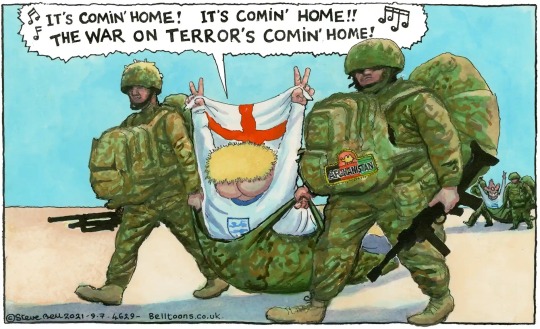
Count on us, probably sooner rather than later, doing precisely the same thing in Afghanistan. Again.
Thanks for your question
#question#ask#afghanistan#war#terrorism#warfare#history#america#britain#taliban#pakistan#china#south asia#security#intelligence#europe#un#isaf#nation building#politics#power#military#personal
163 notes
·
View notes
Text
The Freedom of Expression Ep 52 - Kami's avatar plan & Momotaro Dentetsu!? The aim behind the huge spread of conspiracy theories, and related Youtube videos.
K: Hi, this is Dir en grey's Kaoru with this week's episode of The Freedom of Expression. Joe san, Tasai san, welcome.
K: (To Tasai) You're wearing that.
T: I really like this, I wear it to all sorts of places.
K: Really?
T: Yes. Girls tell me I'm cool when I wear it, it made me feel kinda cocky. Haha
J: You should be!
K: When I saw this (on Tasai) I didn't realise what it was, I didn't remember it. Haha, like was this really ours?
T: When I first heard about this, I heard that Kaoru had made it with great detail, haha.
K: Well, speaking of Dir en grey, we've decided to release a new single.
*applause*
K: At this point it will be in Spring.
J: I see. I can't wait for it.
K: The song will be called 'Oboro'
J: How are you progressing with it?
K: Uh, at the moment we are just starting the mixing..we are at the start of February now.
J: So, like, you can see the finish line already?
K: Hm, well....yeh. We've all finished our parts.
J: Ah, I see. The members' performances are all over.
T: Uh, at the end of year announcement, the talk about the avatars, with Kaoru playing really high up, haha.
Kami: Um...um, are you gonna make a music video for it?
K: Eh?
Kami: You will make a music video, right?
J: Oh, a music video?
Kami: Yeah. Will you make it as an avatar video?
K: Well..we havn't really thought about it yet.
Kami: I am really interested in that, I really liked that idea.
J, T: Ehhh.
K: Thank you.
Kami: I kinda want you to make another one.
K: Oh, for the new song too?
Kami: Yeah, I really want you to make one for the new song.
T: Ah, but you said you havn't thought about that this time?
K: Not at this point, no.
Kami: Why don't you let me do it?
J: Haha
K: Eh? Let Kami make it?
J: Kami, do you have any talent for that type of thing?
Kami: Well, I mean, I reckon I could do it.
T: He reckons he could?
Kami: In my own godly way...I'd like to have a go.
J, T: Ohhh.
Kami: Thats right.
K: Will it work?
T: Haha
J: Yeh, because don't they usually do this type of thing in the workshop?
K: This is a brand new development, right?
T: Yeh, Im pretty surprised too.
Kami: I understand that, but I do think it would be good...like to have it reviewed in the workshop.
T: Ahh, like he wants to raise his reputation.
J: Yeh, but its quite ???*1. Kami, do you have confidence?
Kami:Yes, I do.
J, T: Ohh.
T: He's amazing.
J: Kaoru, he said he's confident?
Kami: Um, it might turn out kinda fun style though.
T: Fun style?
K: Fun style...we don't really have that image though.
J: Right.
K: Well...I'll have to ask the other members.
T, J: Yeh.
Kami: Kaoru, you are the leader, so there's no need to do that.
K: No no no. Its precisely because Im the leader that I have to ask.
J: Haha, yeh, just telling them out of the blue that the god from your own youtube channel will be making an avatar video..they would say thats not a leader!
Kami: No, but say something skillful.
K: Well, I'll just ask them.
T: I'm sorry to say this Kaoru, but I kinda wanna see this happen.
J: Really?!
Kami: A video produced by Kami..what do you think, Joe?
J: Well, it could be scary...
T: Haha.
J: Its not really about something incredible happening, its more like what is gonna come out of the limits of this god.
K: I personally don't have any problem with it, but as for Dir en grey, thats a group decision.
J: Well, yes.
K: It depends on that.
J: So, we'll hand the issue over to you for now to get the other members' approval.
K: Yeh.
Kami: Im being quite brave here, but I also have another request. I've had another idea.
J: You are being brash, aren't you?!
T: He is asking a lot today.
Kami: I thought it might liven up the show a bit.
J: Ahh, ok, go ahead...
Kami: Should we all play Momotaro Dentetsu together?
J, K, T: Momotetsu??
T: Ah, thats a good idea, I'm all for that!
Kami: Lets do it.
T: I really like Momotetsu..
K: Everyone's playing it recently, aren't they?
T: Yeah, its really popular at the moment.
J: I'm sorry, I reacted when he said the name..but I actually don't know what Momotetsu is...
T: Well, its a board game..
K: A board game style video game.
J: Oh right. What is 'tetsu'...like trains?
K: Yes.
T: Do you know Monopoly?
J: Yes, I know that.
T: Its like a train version of Monopoly.
J: Ahh, ok. Well, lets do it! Thats ok. How would we do it?
K: Well, we can think about that later.
J: Yes, ok..but that means its a posibility?
K: Will Kami play too?
Kami: Oh, yes! Thank you!
J: He sounds so happy, haha.
T: Kami, how will you join in with the game?
Kami:.....Yeh, how will I?
J: Yes, you tell us.
Kami:....how would I? I'd have to get some one to do it for me.
K, T: Haha
J: Like a representative of Kami?
Kami: Yeah.
T: Another person that we've never met will come, right? haha. Kami won't have met them, it will be a total stranger.
J: Dubious, right?
K: Ahh, but I havn't played Momotetsu in ages.
T: Ah, in the newest version you get stronger privileges, and its like you can make deliveries freely*2
J: So we are looking towards actually doing this, for now.
K: Well, yeah, its ok. We've got the start of two new plans.
J: Yep, one is a Kami produced avatar video for the new single.
K: Its not really 'produced by' though, more like 'made by'.
T: Making it on his own
J: Yeah, he's making it on his own for us.
K: Its more reassuring that way.
J: Haha, like, not in a collaboration?
K: I approve it of that.
Kami: Im making it on my own, but I don't have any money, so I want to get the money for it from you.
K: No, I can't do that.
J, T: Hahaha
J: He said he wanted to do it himself. He asked you if he could do it! If you want to do it yourself, you have to deal with the cost yourself.
K: This show has zero production cost anyway.
J: Haha, is that right? Thats tough.
T: We finally got a decent mic stand.
K: Yeah, but its kinda been reformed.
J: The mic stand fell over before didn't it?
K: ???*3
Kami: I don't have any money!
K: Well, it doesn't have to be that high quality.
J: Yeah.
K: He doesn't need a camera though.
J: No. So there are two conditions as for making an avatar vid: one is that Kaoru has to get the permission from the other members, and the other is that Kami has to cover the production costs himself.
*On screen note: Permission was gained from all members in the following days*)
T: Yeah. ????*4, like to show he's made it all himself.
K: Yeh, because if we paid for it, we'd have to approve the whole thing.
J: Oh, yeh, like an official check?
K: Yeah.
J: That would be a bit different. What do you think Kami?
Kami: If I make it, can I sell it?
T: Haha, 'If I make it can I sell it'??
K: No, you cannot. That is that is the biggest rule.
Kami: Oh, please let me sell it!!!
K: That totally depends on how good it is.
J: Right, you might allow it if it was outstanding.
T: Haha
K: Ok, Joe, lets look at today's topic.
J: Yes, 'A monthly income of ¥1million. Chaging tune during game commentary. What is the aim of the massive spread of conspiracy theories, and related Youtube videos?' Well, there is a lot of news surrounding the American Presidential election last year, but a huge amount of conspiracy theories and fake information is spreading even amongst Trump supporters in Japan. Within this are big ones like, 'Trump will unleash martial law, and mass arrests of traitors will begin', 'Nancy Pelosi has been arrested', etc etc. There are even theories that are circulating only in Japan, and which are spreading through Youtube videos and round up sites. Within those, there is one user who brings up such material in the middle of game commentary videos, and can make up to ¥1million per month. The posibility that they are doing it for the advertising revenue cannot be denied. Well, its like, is it ok to spread lies in return for money?... this news questions the 'freedom of expression'.
K: Well, conspiracy theories have been around for ages, havn't they?
J: They always have, yes.
K: But since covid started...there have been...like, a load of theories coming up about it, right?
J: Yeah.
K: I kinda get the sense that a lot of conspiracy theories about covid have grown to be seen as almost the truth.
T, J: I see.
K: You don't even know whats a conspiracy theory or whats real news now.
J: Well, yeah. In relation to covid, I also don't know what is actually correct. In some sense, there are certain voices that are louder than others, and if you mix in these conspiracy theories, you get this kind of....well, like with these protests in relation to the American election, or even without that, these theories do spread.
K: You kind of watch them in a funny sense to start, but then it feels like they gradually loose power.
J, T: Yeh.
K: There are people who will end up believing them though.
Kami: Um, that game commentator who is talking about conspiracy theories in order to make a profit, I don't like that. I want him to try harder, like, don't be influenced by money.
T: No no no. Kami has been talking about money a lot, haha
J: Yeh, like, 'Can I sell it?' He's only telling other people not to be influenced by money.
Kami: Yeah, gods are influenced by money...gods are. I kinda understand how this guy feels. I can't help it.
J: You can't help it?
Kami: Yep.
J: You can't help it for money?
Kami: Yeah, I take it back, its ok to be influenced by money.
J, K, T: Hahaha
J: Kami, you're weak!
T: That was a quick turnaround.
J: I was pretty shocked that this guy can make ¥1million per month though.
K: Well, if his view count grows...
J: Yeah.
K: Those numbers would be impossible for this show.
J: Haha, yeah, everyone please help us out with that. Even if we aimed to make ¥1million, conspiracy theories take up a lot of time, right?
T: Yeh, but how about we feature some conspiracy theories?
J: If we will get like this guy, right?
Kami: Ah, lets go with some conspiracy theories!
J, T: Haha
K: There are probably people out there really putting thought into making new conspiracy theories, aren't there?
J, T: Yeah.
K: It sounds pretty difficult. Like, what type of conspiracies would fly?
J, T: Right.
J: ???*5
K: Like Kami's?
J: Kami's conspiracy theories, haha. But it is difficult. Hm, eventually we'll have a 'Freedom of Expression conspiracy theories edition'.
T: Well, lets do more of this kind of stuff.
J: Tokyo Sports loves this kind of thing, doesn't it?
T: Yeah.
J: Do your sales go up when you feature this stuff?
T: Well, not really with conspiracy theories, but we sell at lot when we write about UFOs and stuff. People are really curious about things that are 'unknown'. They really are.
J: Hm.
K: Ok, on that note, lets finish here. Thank you very much.
*1,3,4,5 Couldn't catch/figure out
*2 I've never played Momotetsu so Im not sure if im understanding the explanation right.
To top page
12 notes
·
View notes
Text
Harrison Ford: 2020 summary
A year like no other, as you must have heard countless times. The pandemic changed almost everybody´s life on this planet and Harrison wasn´t an exception. Our lil´ bean is strong and healthy but also has to be safe at home, so this year didn´t deliver many news about Harrison. Still, we had a new Harrison movie, The Call of the Wild, released in February, and a few other events before the lockdown. 2020 was also marked by the death of 3 former Harrison´s costars: Chadwick Boseman, Sean Connery and David Prowse. May all of them rest on peace on Heaven.
A new year begins, and we all wish Harrison (and everyone by the way) a productive, happy and healthy 2021. Stay safe!
JANUARY
Early January: Harrison Ford enjoying his holidays in the caribbean island of Bonaire


25th: Harrison Ford with singer Carole Bayer Sager in a dinner in support of US Democratic candidate Michael Bloomberg

28th: The Call of the Wild “Adventure Companions” Featurette. Harrison Ford talks about dogs and companionship in The Call of the Wild’s “Adventure Companions” featurette.
youtube
28th: not sure where these pics were taken. Probably in Wyoming? (pics from Rich Elali)

FEBRUARY
3rd: Verizon Super Bowl Ad Features Harrison Ford And New Pearl Jam Song
Kathleen Kennedy Says Harrison Ford Is Still On For ‘Indiana Jones 5’
Early-mid February: the national and international promotion of The Call of the Wild begins
5th: In Mexico City:

Harrison Ford: America Has Lost Its Moral Leadership And Credibility: The “Star Wars” and “Indiana Jones” star calls out U.S. policy on immigration and climate.
11th: On the Jimmy Kimmel Show:
youtube
More here
13th: Harrison Ford, actor and watch designer. Newly adapted from Jack London’s literary classic, “The Call of the Wild” transports us to the snowy expanses of Alaska in the 1890s, with Harrison Ford as prospector John Thornton. The actor talks about climate activism, technology and why mechanical watches beat smartwatches every time.
14th: Indiana Jones 5 Starts Shooting In Two Months Says Harrison Ford : The long delayed fifth Indiana Jones film is finally about to get underway, as Harrison Ford reveals that he will begin shooting in two months. (that was what they were planning before COVID-19 hit the world...)
14th: Harrison Ford: Indiana Jones 5 Will “See Part of His History Resolved”
17th: “A Force ghost? I don’t know what a Force ghost is…I have no idea what a Force ghost is. And I don’t care!“. Legend.
21st: The Call of the Wild is released in cinemas

At the movie premiere in Los Angeles:

BRING ON THE PUPPIES:
youtube
More videos:
Call of the Wild Survival Tips!
SNACK??? (Kudos to that girl)
Find epic stories at your library!
More news:
Of Course Harrison Ford Did His Own Call Of The Wild Stunts And 'Wore Out' The Stunt Team
Harrison Ford's shirtless chest is that buff (at 77) for his 'Call of the Wild' swim scene
26th: Steven Spielberg Won’t Direct ‘Indiana Jones 5,’ James Mangold in Talks to Replace

27th: Harrison Ford Breaks Down His Career, from 'Star Wars' to 'Indiana Jones' (Vanity Fair)
Late February: Harrison Ford visits Google´s offices in San Francisco to test the company´s self-driving car. [x] [x] [x] [x]

MARCH
14th: Harrison spotted in South Hadley, Massachusetts [x]. Apparently Harrison and Calista went to Massachusetts to pick up their son Liam after college shut down due to the coronavirus pandemic.

MARCH
MARCH
MARCH
MARCH
...
APRIL
3rd: Disney delay multiple release dates including Jungle Cruise, The French Dispatch, and Indiana Jones 5
(…) Another big reveal is that Indiana Jones 5 – which will reportedly be directed by James Mangold – is being pushed back a year, from July 9, 2021 to July 29, 2022.
29th: Harrison Ford under FAA investigation after making a mistake while operating an airplane on the runway
According to the audio obtained by TMZ, Ford, 77, did not follow the direction of a tower operator to “keep short” on the runway because of “traffic”. It seems that the actor did not hear the direction. He nevertheless started to cross the runway, which prompted the operator to reprimand him for not following his instructions.
“Cross this trail now!” I told you to keep it short! You have to listen, “said the operator.
“Excuse me, sir, I thought exactly the opposite. I’m really sorry, ”said Ford immediately.
TMZ said there was no risk of an accident. The other aircraft was allegedly 3600 feet from Ford’s aircraft.
MAY
6th: Lucasfilm Reportedly Wants Harrison Ford To Return For Han And Chewie Star Wars Spinoff (Note: this hasn´t been officially confirmed by Lucasfilm)
15th: No news but I think this is cute:


From twitter.com/siikasele
21st: The Empire Strikes Back 40th anniversary. 40 years ago, TESB was released on theaters the 21st of May of 1980.
27th: James Mangold Confirmed To Direct Indiana Jones 5. Producer Frank Marshall confirms James Mangold is directing Indiana Jones 5 and says he's only just begun to work on his own script for the movie.
28th: James Mangold plans to take Indiana Jones franchise 'someplace new'.
Indiana Jones Writer on How Pandemic Will Affect Film's Script
JUNE
Nothing happens but look at this

You are welcome.
JULY
13th: Happy birthday king!
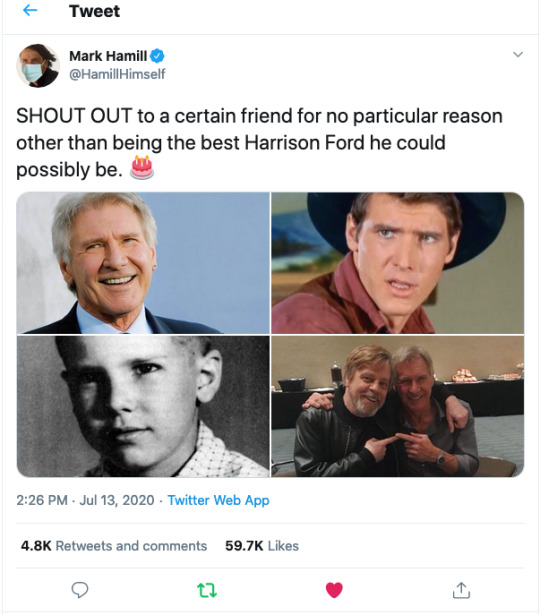
AUGUST
23rd: Harrison Ford dropping off his son Liam at College with wife Calista Flockhart via private plane (from tinyrebelstuff)

28th: Chadwick Boseman dies of cancer at the age of 43
Harrison Ford Calls Chadwick Boseman "As Much a Hero as Any He Played"
“Chadwick Boseman was as compelling, powerful and truthful as the characters he chose to play,” Ford said in a statement to The Hollywood Reporter. “His intelligence, personal dignity and deep commitment inspired his colleagues and elevated the stories he told. He is as much a hero as any he played. He is loved and will be deeply missed.”
SEPTEMBER
24th: Harrison Ford Cleared by FAA in Runway Investigation. "The FAA has closed the case involving the pilot who crossed a Hawthorne Municipal Airport runway without authorization on April 24, 2020. The FAA required the pilot to take a remedial runway incursion training course. When the pilot successfully completed the course, the FAA closed the case with no additional action," the FAA said in a statement to The Hollywood Reporter.
OCTOBER
19th: Harrison Ford & Ed Helms To Star In STX Seafaring Comedy ‘Adventures Of Burt Squire’
22nd: Actor and Pilot Harrison Ford Becomes Airlink Spokesperson. Video here
31st: Sean Connery dies at 90.
Sean Connery: Harrison Ford pays tribute to his Indiana Jones father and 'dear friend'
"He was my father... not in life... but in Indy 3," he said.
"You don't know pleasure until someone pays you to take Sean Connery for a ride in the sidecar of a Russian motorcycle bouncing along a bumpy, twisty mountain trail and getting to watch him squirm.
"God, we had fun - if he's in heaven, I hope they have golf courses.
"Rest in peace, dear friend."
NOVEMBER
2nd: Harrison Ford And Lincoln Project Back Anthony Fauci, Advocate Firing Donald Trump
In the waning hours of the 2020 presidential election, the Lincoln Project has enlisted Harrison Ford to narrate a new ad that plays up President Donald Trump’s suggestion that he will fire Dr. Anthony Fauci.
The spot features a scene from a Trump rally on Sunday in which supporters began chanting “Fire Fauci! Fire Fauci!” and the president responded, “Don’t tell anybody, but let me wait til a little bit after the election.”
Ford then says, “Tomorrow, you can fire only one of them. The choice is yours.”
3rd: Harrison Ford and Bloomberg on Biden 2020
youtube
7th: Destiel becomes canon. Harrison doesn´t give a single fuck.
Also Joe Biden wins the US elections. Trump is defeated. Harrison, we know you hate Donald Trump. Congratulations.
21st: Harrison Ford back in Boston, Massachusetts, to pick up his son Liam for Thanksgiving Day.

28th: David Prowse, who played Darth Vader in the original trilogy, dies at the age of 85. Sorry, I didn´t find any words from Harrison on his memory... it seems they weren´t so close. Also, Jeremy Bulloch, the original Boba Fett, dies at 75 the 17th of december.
DECEMBER
10th: Indiana Jones: James Mangold, Harrison Ford Team to Close Out the Character
Harrison Ford and James Mangold's Indiana Jones 5 will serve as the final chapter for the iconic character.

Disney changed the Indiana Jones logotype. I have a bad feeling about this.
15th: Rare, behind-the-scenes look at 'The Empire Strikes Back'
Including this jewel:
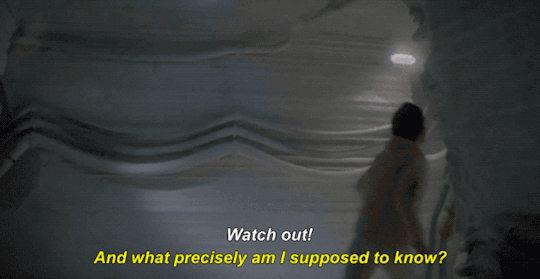
Gif from the @theorganasolo
31st: And just at the very last day of this weird and strange year...
Disney Reportedly Wants Harrison Ford For Indiana Jones Streaming Show
Thankfully, then, it seems that the fifth (Indiana Jones) outing may not be the last we see of the actor in the role, as insider Daniel Richtman claims that Disney wants Ford to appear in a series that’s being developed for their streaming service. Further details are unclear and the tipster doesn’t say if it’s an all-new show or a reboot of The Young Indiana Jones Chronicles, but as one of the Mouse House’s most valuable assets, it wouldn’t be a surprise if they wanted to continue mining the property once Indiana Jones 5 wraps up the big screen stories for good.
Thanks everyone! Hopefully in 2021 the pandemic will fade and the world will return to normalcy. Luckily the production of Indiana Jones V will start this spring, as well as other Harrison projects such the tv show The Staircase and the movie starring with Ed Elms. Fingers crossed for a year full of (good) news about Harrison. Have a happy and safe 2021.
#harrison ford#2020#indiana jones#star wars#lucasfilm#the call of the wild#chris sanders#dan stevens#omar sy#karen gillian#carole bayer sanger#michael bloomberg#pearl jam#kathleen kennedy#jimmy kimmel#mark hamill#carrie fisher#jack london#donald trump#joe biden#2020 US presidential elections#TESB#chadwick boseman#sean connery#david prowse#jeremy bulloch#ed elms#steven spielberg#james mangold#waymo
64 notes
·
View notes
Text
Dear Followers
Hello Everyone,
Its been quite a while and on behalf of the Mods of this page we wanted to reach out to everyone who has followed, reblogged, written in, and generally supported this blog even in the years since we’ve provided...well, any updates at all. It had honestly been over a year since I last logged onto this blog to check updates, and I did so today because A) everything going on right now made me desperately miss this head canon and B) I saw a new submission on a project I assumed people had long since lost an interest in...
This blog was and still is very much a project of love and devotion during a time when all three mods found themselves with both the time and the need for this sort of outlet. Some of you may have noted that this blog began to flag a bit during the rise of Donald Trump and the inevitable aftermath of his election. Some of you have also probably noted our blog started going quiet when J.K. Rowling started claiming the canon for the USA. Neither of these reasons were entirely the whole purpose, but they did contribute to our lack of posting.
You see I started this page back when I was in law school, and invited two of my oldest and closest friends, both in life and in fandom, to join me in growing the head canon. Since then, all three of us have been through a lot. I’ve graduated (of course) and gone on to be a full time attorney, which is extremely time consuming. I’ve married my husband/partner, adopted two beautiful cats (re-homed from owners who couldn’t care for them anyone), and spend a lot of my time with them. My other mods have also moved on with their lives as they’ve gotten busier (if you haven’t checked out “From Unseen Fire” by Cass Morris one of my fellow mods’ authorial debut, I highly suggest it - and yes that is my shameless plug on her behalf).
So...with growing responsibilities and outside commitments it became a lot harder to maintain this blog, especially against some of the backlash we were starting to receive from supporters of JK’s canon, the general toxicity all too common in most fandom from every side of the aisle, and frankly a desire to leave the digital space to try and contribute more to the fight out in the real world, where our privilege, backgrounds, training, and education might make a difference.
And now, once again (and perhaps as always) the US is at a cross roads. History is happening outside. A lot of our followers and friends are already on the front line of it, and if you are a member of the protests or working to try and make a positive change out there, we here at American Wizarding salute you and we hope you are keeping safe.
This Blog is Not Dead. I very much want to come back here one day and keep creating. We will still accept submissions and I promise I will try to be better about sharing those. I hope that our commitment to diversity and celebrating the best in America while addressing some of the worst through the lens of fiction has given some of you enjoyment. I hope this has been a safe place for those of you who didn’t always feel like you had one, even in a fiction as comforting as Harry Potter has been for many of us. I hope you are all safe, and well, and happy, and doing whatever part you can, no matter how small you think it is (and I assure you, no part is too small), to make the US into the country we know it can be, with or without magic.
Sincerely,
John, Laveau Academy, Class of 2006, “From Many Streams a River Flows “
111 notes
·
View notes
Text
Not to alarm you, but... whoa
This was sent to me in an email from MVT, a tactical training group I was planning on taking courses from in the future. This is how some of these guys feel, not to alarm anyone, I just wanted to show you how serious the situation is in America right now. What you are about to read is a mainstream view, as in millions and millions and millions of Americans feel this way but are largely silent at the moment. I don’t necessarily agree with everything he says, but I thought it would be worth sharing so you could feel the same sense of alarm I felt going through my emails... - REGIII, M.D., 32, RAM ‘Modern Alchemist’
“BLUF: What you need to hear, but don’t want to.
Let’s keep things simple, shall we.
We are facing the end of the Republic. It is easily argued that it already expired, the point being that now we face a deep state coup, massive election fraud, huge corruption, an attempted Marxist takeover, and foreign control from China.
Democrats are traitors to the Republic. Republicans are not much better. The rule of law is dead: nothing that Trump has attempted to do has been done. He is surrounded by the deep state. The three letter agencies (of which so many of you are so afraid) have sold out to the dark side. They are part of the deep state.
Many of you are sold on the PSYOP that there is a plan in place. You may follow QAnon. “Trust the plan.” There is no plan. The attorneys who have attempted to fight the election fraud in court are fools. Why? Because they are working in an old system, where they had success with big lawsuits in court, and cannot get their heads around the massive corruption of the rule of law and the court system. They are working in an old system that no longer has merit. The supreme court is not doing its job. The Lawyers will not save you; you have to save yourself.
I would like to be wrong, and I would be happy to be so. But I don’t think so. Unless Trump pulls a plan out of his ass, Biden is getting sworn in on the 20th of January. The reprieve we had during the four years of the Trump Presidency will be over.
Most of America is sleeping. They expect that we will get over this. They expect a ‘return to normal.’ That is not going to happen. In 2021, it will all be over. The Republic will be finally dead. They hate you, and will be after you. That means your livelihood, your family, even your very lives. It always happens with a socialist administration. Even when you tell yourself that “it can’t happen here.” America is the prize, and it will happen here more than anywhere else.
Thus we face huge normalcy bias and denial. And this is the key, what I want to talk about here today.
I wrote a recent article called “Trust in Combat.” What I didn’t do was give you the answer to the problem. I will do so today, however much you don’t want to hear it.
The Trust in Combat article focused on the problems with forming groups, and training, and all the inherent issues about ego that will destroy a group, which is formed before the actual need for that group. Thus, we form groups now which are aimed at surviving hard times, but are operating now in easy times. Thus, ego will play and when it comes time, when you are actually in combat and the rounds are flying, it is likely to all fall down.
And that is the issue. We are either facing war, or perhaps we are not facing war at all, given the somnolence of the American population. We would tell ourselves that at some point, they must wake up. But will they? Or will they go to the camps like the citizens of the USSR? Will they tell themselves that “it will be resolved in the courts.” I really don’t know. I don’t have a crystal ball. I have no idea how this will play out.
I will tell you that there is no point waiting until the Marxist coup is consolidated, and strongly in place. Unless Trump is able to pull something out of the bag (a PSYOP story that will keep many of you hesitating) then what needs to happen is that We The People stand up. But we know that We The People will not do this. The ‘conservatives’ are either corrupt, or as seen with many of the ‘MAGA’ voters, are too focused on picking up litter and being polite, despite the assaults from Antifa. There comes a time to forget about the litter, and be rude as fuck. We are facing a civilizational assault on Liberty and the United States Constitution. And all we really care about is picking up litter, being polite, and trying to get by. There is absolutely no point in keeping arms, for resisting tyranny, if you have absolutely no intention of using them. All these quotes about blades of grass and the American Riflemen make me laugh; weapons will be banned and everyone will hand them in, because they were conditioned and told to do so (see how many are wearing masks?) Except, of course, for those who won’t; the problem being that they will be small groups and individuals.
So, however we get there, we will be at war. Whether the left comes for us, and however we resist, whether it be in small or large groups, we will be at war. This means that hardly anyone is trained, or physically fit enough; we will end up in combat as a total shit show. It’s going to be a total disaster and a lot of people will unnecessarily die. But that is just the way it is, because hardly anyone has the foresight to get fit, prepared and trained before such an event. We will be suddenly involved in some sort of Bosnian civil war scenario with absolutely no preparation and no forming of trusted, reliable, teams in advance.
So what is the solution? Individually we must do all we can to get fit, trained and equipped. We just know that we cannot form groups before the war, because of the way we are (‘Rugged Individuals’), and even groups that already exist are most likely flawed because they are not tested in combat (not fully trusted and tested in advance). The moment that the rounds start flying, is exactly the moment when all the unspoken issues of ego and trust start appearing, and before you know it, no one is doing what you trained to do (or not trained?) No one is moving. See my ‘Trust in Combat” article if you have not read it already.
What needs to happen is that, when people finally wake up and realize that they need to fight back, they need discipline and organization. People fight for a couple of things, and those can be summed up as 1) the group, and love of the group / not wanting to appear a coward in front of them and 2) discipline. This discipline can be found in the military with UCMJ, Uniform Code of Military Justice. The military is a legitimate organization where in small teams, the ‘alpha’ personalities are kept in check by a mixture of UCMJ (the hard check) and a general understanding that for the team to succeed, leaders must be supported. If leaders are generally supported, then people will do less dying (assuming competent leadership), and the team will be successful. None of this takes away from the wider discussion of leaders, for example, listening to helpful planning suggestions, not being a nightmare of a leader (effective leadership) and the rest; thus assuming relative competence from leadership, it is a good idea that the leader is supported in his role. Otherwise “we break down, the machine breaks down.”
How does this happen in civilian groups, either formed now or formed after hostilities begin? The leader must be able to rely on his team. He must be able to assume discipline and adherence to orders. When he expects someone to move, they must move. There must be a system of some form of oath, and some form of UCMJ. If people fail to do as ordered in combat, or are willfully disobedient, then they will face effective discipline.
And we know that this is not an acceptable plan for all of you “you are not the boss of me” types. ‘Rugged Individualists” (LOL), who will die as such.
When we talk about some of our favorite things, like the Revolutionary War or the Civil War, and we refer to the organizations of the day, we have to realize that these were either Armies or Militias. The Colonial Militia was an actual military force with leaders and discipline. Yes, I know that the Bosnia x Rwanda situation that we are likely to face is not the same war as they fought, but the point being that you cannot expect men to rise to combat without training and discipline. Without that they are just a mob, and will likely be as effective. And for those that don’t want to hear it, this is also not he same as a ‘militia muster’ with untrained and unfit people showing up to ‘muster’ in a field and then going home. Again, just another form of a mob.
Take it or leave it, I provide this to you as a solution. Given that it is likely to be rejected, all I can tell you is that you are best at home defending your family from the socialist hell that will be unleashed in 2021. That in itself is not an effective remedy, and allows us to be taken down one by one.
As for Trump, if he is going to act, he needs to act now. This situation will not be solved in the courts, it can only be solved by supra-legal action. By which I mean the insurrection act and whole lot of members of the coup going to jail / the firing squad. This has been termed “Crossing the Rubicon” but he must do so mindful of the best interest of the Constitution. Consolidate power, fix it, and step down. This would be truly in the spirit of a Roman ‘Dictator.’ But I don’t think he has it in him, and I don’t believe that he is really playing ‘4D chess.’ Prove me wrong. I would rather be wrong, than face the hell of a civil war, which many of us will not survive, victorious or not.”
Source: Originally posted here at the MVT blog: https://maxvelocitytactical.com/where-we-are/
3 notes
·
View notes
Text
Prompts for US Election Season Safety-Planning & Engagement
I’ve got some folks in my DMs getting salty after my earlier response to a US election-based post, so here we are, tired and angry.
What is a safety-plan?
A personalized, practical plan to improve your safety. I list some basics here, but everyone has different needs as an individual - it’s okay if this isn’t as useful to you as it might be for someone else. Cherry-pick what’s useful and discard the rest.
Emotional Safety
Consider the safe coping skills you already use when you’re feeling activated, triggered, or panicking. If those techniques use external tools, like a weighted blanket, get those tools out and have them on hand.
Reach out to people you trust with specific actions they can do to support you, as appropriate.
Consider limiting your social media engagement for a day, a few days, a week - however long you need.
If you still want to know about important updates, ask someone you trust to provide those upon your request.
Reach out to people you trust who share your specific worries, especially around a shared identity. This can help us feel less isolated. For example, my girlfriend and I will be texting each other cute animals because we are very gay and very tired.
Draw firm boundaries with people (especially conservative relatives) as needed who may want more of your time or labor than you have capacity for. If you’re not sure how to do that safely, you can call a domestic violence hotline and ask the advocate to help you find/practice language to use; this is something we regularly do with callers.
Physical Safety
We’re already seeing violence against individuals and groups of people who visibly belong (or appear to visibly belong) to politically vulnerable communities at polls or street shutdowns initiated by Trump trains.
Stock up on food, medications, and other supplies as much as you can to limit the number of times you’ll need to leave the house.
Try to avoid going out alone. Can an adult in your household/quarantine pod go with you?
Consider checking out phone apps that will automatically text/call someone you trust if you miss a check-in window (often used by femmes going out on a new date or to a club).
Be prepared for road closures by hostile Trump supporters. Unless you have the skills/resources for it, don’t initiate engagement! Find another route, if possible.
Know your legal rights in case law enforcement starts shit. Check out some street protester tips on how to navigate getting arrested, such as having important phone numbers written in permanent marker on your body somewhere. As most politically vulnerable folks know, you don’t have to be breaking any kind of law to get stopped; you can, quite literally, be peacefully in line at the polls and get pepper-sprayed by cops anyway.
Dealing with Feeling Helpless
Start by taking honest stock of yourself about your needs in the current moment. You put the oxygen mask on your face first, after all.
Second? Don’t judge yourself for having those needs. It’s hard, but I promise you that almost everyone is feeling “weak,” depressed, angry, anxious, and sometimes all of that at once. Stay present-focused: “This is a need I’m having. What is available to me to get that need met as safely as possible?”
Look for other people doing the same kind of you’re doing - or the kind of work you want to do. Collective effort shares the burden.
Remember that your people have survived generations of violence. We will continue to do so.
Understand that election-related stress will last for at least a few months.
There’s likely to be an escalation in violence no matter which way the presidential election goes, and either way, the next inauguration isn’t until January 2021. You need to be prepared for the long haul.
When you feel ready to reengage:
Recognize that voting is the least thing that a person can do. With work aimed at systemic, intergenerational violence, we need all hands engaged in a variety of ways for the long-term.
Stop going after activists of color who choose not to vote. If you don’t have personal lived experience relevant to their reasoning, leave them alone.
Be creative in adapting skills, interests, and networks you already have. Everyone has something to offer! Although aimed in part at pagans, this article gives some ideas and points to consider for everyone.
If anyone tells you that you don’t have anything to offer in social justice efforts, they’re an asshole. (And probably a bigot, and it’s probably ableist. Fuck those people.) When we say all hands on deck, we mean all, regardless of the lived experiences attached to those hands.
Do you have emotional or physical safety concerns that aren’t mentioned here?
Ask someone you trust to help you brainstorm. What are the concrete worries you have, emotionally or physically? How can you address, eliminate, mitigate, or cope with those worries in whatever creative, safe ways you can? Make an actual list if that helps.
Consider contacting a domestic violence hotline. We’re trained to safety-plan with people who are in the kind of danger that doesn’t usually go away quickly and who have limited access to resources (although if an unhealthy partner or relative isn’t part of your concern, it’s possible the advocate may try referring you elsewhere).
Warm lines are a cool alternative to hotlines. Lots of local and national ones exist for different purposes.
Check out some leftist blogs: they tend to regularly post content about safety related to different scenarios, much of which is also tailored to the needs of specific demographics (being trans, Black, Jewish, disabled, etc). One solid resource on tumblr is @antifainternational.
Check out blogs written by and for a particular demographic, even if you’re not part of that demographic. Writers, bloggers, and activists in these communities tend to have common lived experience of systemic violence and there is a lot of amazing, pragmatic content out there for coping under oppression.
Got questions? I’m happy to answer whatever I can via ask or DM, even if it’s to direct you to a resource more helpful than I.
#election 2020#american politics#politics#voting#voter safety#there's a lot more i want to say but this is already a#long post#and i want to get this out since it's literally the night before official election day
3 notes
·
View notes
Text
Odes to Old Gods
I started this year intending to journal about things I survive. Then at the end of the year, I could look back on my challenges and think about them in a more positive way--wow, look at what I overcame! The plan was to document everything, both good and bad, so that I could think about them more as experiences and lessons learned than as... good and bad.
Needless to say, I stopped keeping track of those things in April.
Earlier this month, I pulled out the journal again to update the list. I ended up quitting on that too.
I do think, though, that in a less chaotic year, thinking about my life this way would be good practice. So, here I am, sharing my list with you in the form of an end-of-year, wrap-up blog post.
A few quick caveats:
This year was hard for literally everyone except maybe Jeff Bezos.
It is not healthy to compare challenges or struggles or suffering.
I am not sharing this because I am looking for sympathy... I believe that being vulnerable is a very important part of the human experience but we can all also use a reminder that we never really know all of what anyone is experiencing. We shouldn’t need that reminder to treat others with love... but the older I get, the more I think those reminders might be necessary.
Things I have survived in 2020:
- A bit of a stalking experience in January which has since been resolved.
- Losing my job, hunting for a new job, securing a new job, training for the new job.
- My first Harry Potter tattoo for my ten-year tattooiversary.
- The fires in Australia.
- An absolutely wonderful trip to NYC with my dad when I got to see both Beetlejuice and Hadestown and have an enormous strawberry cheesecake milkshake from Junior’s.
- Losing Kobe Bryant.
- Parasite absolutely CRUSHING the Oscars.
- Having a really, really good visit with my grandparents in March before all hell broke loose.
- Weinstein being convicted and sentenced.
[Everything after this point happened during a global pandemic.]
- Losing Grandmom. I was unable to attend her funeral and still have not had the chance to grieve this loss with my extended family.
- Losing my health insurance.
- A Zoom party for my Grammy’s 80th birthday.
- Losing Breonna Taylor. And George Floyd. And so, so many others. This is the first year I have really committed to understanding the current race-related issues this country faces and BOY, do we have work to do.
- The stress but success of orchestrating a safe family trip so that I didn’t have to go an entire year without seeing my brother.
- Losing my shifts at my primary job due to virus-related concerns.
- Countless other family happy birthdays over Zoom.
- My 60-year-old mother returning to work face-to-face with a student population that largely ignores all virus-related guidelines despite her working tirelessly for months this spring to offer UHS providers an adequate work-from-home option.
- Being diagnosed with hypertension.
- A nightmarish friend trip. Despite our best laid plans for a safe and healthy visit, Mother Earth decided to trap me 90 miles north of my best friends for 4 days. I eventually got to see them for about 12 hours and honestly, it was worth it. That is the only time I’ve gotten with them all year.
- Losing Ruth Bader Ginsberg.
- The selection of Amy Coney Barrett to the Supreme Court.
- Our sweet girl Clio being diagnosed with a seizure disorder and then coming down with a life-threatening upper respiratory infection.
- Learning that my grandmother would be voting for Trump in the 2020 election.
- The actual election.
- Losing Rooster, my sweet, sweet boy.
- Learning that my uncle has been diagnosed with esophageal cancer.
- Missing Thanksgiving with my extended family.
- Getting really excellent holiday gifts for my favorite people.
- Missing Christmas with my extended family.
- Safely spending some holiday time with my immediate family.
That is FAR from everything. But I don’t have the energy? Capacity? Time? to sort through everything.
Here are the things from this year that I am still currently surviving:
- A global pandemic! And all the associated chaos. With my asthma and high blood pressure and obesity, I am considered high risk and am still not able to safely return to my primary job.
- Hypertension! More on this later.
- Grieving Rooster. In the days after we said goodbye, I wrote a memorial that I will eventually share here. Psychology has recently analyzed data suggesting that losing a pet can be equivalent to losing a relative... I have never felt grief like this. It’s been over a month. I cry every night.
- Managing Clio’s health. She is still adjusting to her seizure medication, which she gets twice a day, and is still on medication to help with lasting symptoms of the respiratory infection. She is fussy about food and her weight fluctuates a lot week to week. She is also a feral rescue who has only ever been handled by me, my mom, and our vet. If mom and I are ever going to vacation together again, we will need to find someone who can manage catching and pilling her twice a day... no easy feat. Fortunately, at the moment, vacations aren’t really a thing for either my mom or I and I am working hard to approach these concerns in a cross-that-bridge-when-we-come-to-it way.
----
This year has been overwhelming. The last two months alone have been overwhelming. And they would’ve been overwhelming without the added spice of a global pandemic. The number of Americans we have lost to this virus has doubled since I last posted here in mid-August. Some time this week we are likely to reach a point where we’re losing 4,000 Americans per day. PER. DAY. This year has been overwhelming.
----
There were some good things this year, of course. I am so, so thankful for all the time I got with my immediate family and the very brief but vital time I got with my friends. Fortunately I am only ever a text away from my closest friends and we are able to message pretty much every day. I am also extremely glad to have found a place in the fantasy enamel pin community. The family I’ve found in pin-land has carried me through some of my lowest points this year. I spent more time in view of the ocean than I typically do in a given year... even though much of that time was still riddled with anxiety. I did art this year. I read books this year. Some really important ones, in fact. If you read nothing else in 2021, read The New Jim Crow. I also got tattooed! I’m going to include those here because I think the significance of each reflects something interesting and important about all I have survived and am surviving this year.
----
In January, I got my first Harry Potter tattoo! My favorite quote from the entire series is delivered by Hagrid during the Triwizard tournament:
”What’s comin’ will come, and we’ll meet it when it does.”
I got that incorporated into a tattoo. In January.
Also in January I got a “Prisoner of Donuts” tattoo... because life just wouldn’t be manageable at all without donuts.
In March, I got a bird of prey carrying a book to represent one of my all time favorite poems, “On Thought in Harness” by Edna St. Vincent Millay. The final lines of that poem:
“Soar, eat ether, see what has never been seen. Depart, be lost, but climb.”
In July, I was able to safely navigate getting a tattoo that symbolizes the saga told in The Lord of the Rings trilogy. LOTR is my first and oldest fandom and the story is still so, so important to me today. The lessons I learned from Tolkien when I was a kid also carried me through some of my hardest moments this year.
Also in July I got a Plumpy tattoo. That’s right. Plumpy. From Candyland. If you haven’t played the game in a while, you may not remember Plumpy. He’s one of the first characters you meet on the game board... and one of the worst cards to see when you’re close to winning the game. You could be three damn squares from the finish line and pull the Plumpy card and back to the beginning of the board you go. Plumpy is a really great reminder that even when we have no choice but to lose ground, we can gain that ground back again. And hey, once you pull the Plumpy card from the deck, you likely won’t see him again for a good long while.
In October, I was able to safely navigate getting my second Harry Potter tattoo. Neville has always been one of my favorite fantasy characters and I chose to carry him with me permanently. His courage, despite so, so much bullshit, inspires me every day. I also got a nautical tattoo for my mom’s ancestors who came to this country and fought in the Revolutionary War. Just as my family has a long and proud history of fighting for what matters, I too will carry that banner, even if it looks very, very different in the modern age. My third tattoo of the appointment is a cuckoo holding playing cards, a nod to one of most important stories I’ve read: Ken Kesey’s “One Flew Over the Cuckoo’s Nest.” This book has informed not just my personal journey with mental illness but my passion to work in the field as well. My final tattoo of my October appointment, less than a week before the 2020 election, is a weeping Lady Justice.
----
This year has made me look critically at things I very comfortably ignored for a long time. I would hope that it has done the same for most of you. Very little if any of this year was easy for me... but the most important lessons are never easy to learn. I’ve spent this year more worried and more angry than I’ve ever been before... and all I hope to do moving forward is use that fear and that anger to make this country, this world, a better place. Miss me with your resolutions this year. Every single day we should prioritize surviving and treating others with understanding and active love. I worked hard to do that this year and I will continue to work hard to do that every day. I’m proud of the work I’ve done. And in case it wasn’t clear, I’ll be dragging as many of you as I can on this journey with me. If you really feel the need to make a resolution this year, resolve to learn. Resolve to understand. Resolve to read The New Jim Crow and then TAKE ACTION. Take action with your votes and your voices and your money. Resolve to act.
----
This year wouldn’t let me escape it without being put on blood pressure medication, despite my best efforts to lower my blood pressure without it. Although I had gotten back down into a healthy range for a few weeks, RBG’s death and the landslide of utter shit that followed that completely wrecked all the progress I had made. I’m not happy about adding a new medicine to my regimen. I’m not happy about adding a new chronic diagnosis to my already lengthy laundry list. I did not expect 30 to look like allergy pills and three daily moisturizers and foot stretches and Metamucil and acid reducers and migraine medication and iron supplements and six prunes a day and chronic pain and blood pressure medication... but here we are. I’m exhausted from working so hard to be healthy just to have all that work not be enough. I feel very much like my body is giving up on me... and that is a feeling I am struggling with a lot right now. My soul is a vibrant but powerless passenger in a car speeding towards the edge of a cliff.
I’ll keep trying though. I start my new medication tonight. Hopefully it helps. Hopefully the side effects are manageable. I don’t really feel like I can handle much more... but I guess we keep going until we can’t.
----
I have no expectations for 2021 to be better. I don’t have much hope for it to be better either. This vaccine will saves lives and that’s really good news. But a lot of other things will be difficult, will stay difficult, will become difficult. I’m going to try to keep fighting, and I hope you do too.
“What’s comin’ will come, and we’ll meet it when it does.”
#Happy New Year#end of the year wrap up#summary#year summary#mental health#high blood pressure#Hypertension#loss#grief#challenges#success#keep fighting#quotes#Hagrid#Harry Potter#poem#one flew over the cuckoo's nest#edna st. vincent millay#on thought in harness#ken kesey#plumpy#candyland#Neville Longbottom#tattoos#family#friends
1 note
·
View note
Text
2020 Vision: What To Expect From The Next Decade (By Someone Who Has No Idea, Obviously.)
Happy New Year, all!! I had planned to do a little run-down last week of everything that happened in the 2010s, but instead succumbed to the existential struggle that comes with the week that follows Christmas Day, in which your time becomes largely swallowed up by asking yourself ‘what day is it?’ and ‘at what point am I supposed to stop living on a diet of alcohol and Quality Street?’. It’s festive purgatory, and you’re literally powerless to do anything other than sleep, eat, and moan that the shops are still playing Christmas music. That’s my excuse, anyway.
So, instead, I thought we’d say a collective “cinnabit, lad” to 2019 and a collective “what is UP, dude?” to the Roaring 20s 2.0, the only sequel that humanity has waited a whole 100 years for. Apart from Avatar 2, which I imagine will come out at some point in the 3020s. What do we know so far about what the 2020s have in store for us? Obviously, not a lot, but as someone who successfully predicted the outcome of the last election, and the UK’s last four Eurovision losses - two things which I’m sure absolutely nobody ever saw coming - I thought I’d give out my own valuable speculation. Here’s what the 2020s might look like, according to me.
Politics
Let’s get it out of the way - we’re in a terrible state. At this point, every important issue is so divisive, that the nation is divided over everything, including whether we’re actually divided or not. Do I think we’ll become any less divided in the coming years, in a United Kingdom where the conversation is so often dominated by things we can absolutely never seem to agree on? Yes. We will have no choice. Why?
All-out war.
Yes, I said it. In 2021, there will be all-out war. With America, probably. I don’t know why. Maybe Trump will get into an argument with Boris Johnson over who can manage to effortlessly look the most like a Viz caricature of themselves - they both already do somehow, I’m just saying they might disagree on which one of them is the best at it. Could be that, or possibly a more serious cause, to do with nuclear weapons or something, but I’d rather not think about that, because it’s not as funny as the Viz thing. And it’s more likely. So, we’ll pretend for now that we’re on the verge of the first pantomime, slapstick war the world has ever seen.
Anyway, while Trump and Johnson are beefing up a storm - picture Punch and Judy, except the puppets are in suits and have thinning, bright yellow hair - previously all-encompassing issues like Brexit will fall by the wayside, until Boris Johnson eventually decides to hand his notice in to focus on more important things, like beating Trump with a wooden spoon and chasing after the dog that stole all his sausages. After this, we’ll all come together to realise that if actual elected officials can’t do the job, then maybe we, the people, deserve our chance to test our political metal. Obviously, we can’t let just anybody have a go, but at the end of the year, Cosmopolitan magazine puts the traditional democratic process at number one on its ‘Leave It In 2021’ list, so we have absolutely no choice but to come up with something else, which brings me to...
Television And Film
2022 will start with a bang, with the debut of Simon Cowell’s new talent show format, So You Think You Can Be The Prime Minister?, hosted of course by Ant and Dec, with the aftershow on ITV2 being hosted by Jeremy Paxman. Contestants will line up in huge crowds to give judges Russell Brand, Susanna Reid, and, of course, Jesus S. Cowell himself (forgot to mention, Simon Cowell has been elected as the new Christ in this completely non-hypothetical universe, alright?) their opinions on hot political topics such as Brexit, the NHS, and, of course, whether a Jaffa Cake can really be classed as a biscuit or not. Each episode, contestants will take part in a live debate, themed around a different issue with every passing week. The two least popular contestants after the weekly phone vote will go head-to-head giving their own rendition of Running The World by Jarvis Cocker, with the worst performer being eliminated. I know a sing-off isn’t exactly relevant in a politics programme, but it’s Saturday night primetime so it’s still got to be at least somewhat entertaining, yeah?
Love Island will be back, of course - and not just with a Summer and Winter edition, but with an additional Spring and Autumn one for the 2024 schedule! This will be a win-win situation for the series producers, and for its viewers, as by 2027, ITV will run out of attractive under-35s to appear on the show, and members of the public will begin getting called up to appear - like with jury duty, except that ITV pay for you to have extensive cosmetic surgery first, so that you’re aesthetically pleasing enough for people to want to tune in, and so that you can maintain a successful career selling Bootea on Instagram afterwards.
Films will also go through a renaissance in the 2020s, as the Hollywood big boys come to a conclusion that everything has just become a little too… blockbuster. To remedy this, they make the joint decision that, 100 years on, we should take ourselves back to the silent film era, which will surely create hundreds of jobs for mute people, therefore solving Hollywood’s problems with a lack of diversity in film. It’ll also give well-known TikTok creators a chance to make the leap into mainstream entertainment, as they’ll have spent so long lip-synching over the years that they’ll now be more qualified to star in these new golden age pictures than actual trained actors. Obviously, that sounds absolutely beyond comprehension, but look at Count Orlok in 1922’s Nosferatu. See his slender limbs, blank stare, gothic dress sense - in a way, he’s the original e-boy, and there’s plenty of them out there on TikTok now that could play the titular vampire just as well in a 100th anniversary remake, just with less neck-biting and more lip-biting. Trust me, it’ll be a hit.
Technology
Throughout the 2010s, there’s been a lot of talk about everyone spending too much time on their bloody phones, so, in 2024, Apple will try to combat this issue when they unveil perhaps their most innovative product to date - the iPhone XZ+, a phone which exists solely in the mind of its users. Not in a Black Mirror, chip-inside-your-brain sort of way, either. It is literally imaginary. It’s a phone that, instead of being a phone, is actually just the concept of a phone. Yes, for the small cost of £1,500 and six units of your own soul, you, too, can block the rest of the world out. How amazing is that? No more wasting hours of your day keeping in touch with friends and family. No more accessing a wealth of information, wherever you are, with a quick Google. No more blocking out the sound of cackling pre-teens on the bus by putting in your earphones and listening to music. These things are bad and must be stopped, before we become an entire species of communicating, bopping, learning zombies.
I think those must be bad things anyway, since you can rarely go a few seconds scrolling through social media without stumbling across a ‘woke’ meme about how the use of smartphones is destroying us, one notification at a time - memes which I’m absolutely sure were created and posted from a book or a potato or something. Otherwise they’d just be hypocritical, wouldn’t they?
Anyway, the iPhone XZ+. It’s the only thing you need inside your head this decade. Apart from a very real ever-growing sense of fear and doom, which you can get for free.
Sport
The next decade will see the Olympics and Paralympics take place in 2020, 2024 and 2028, as well as the Winter equivalents to both in 2022 and 2026. You’d think we’d be all Olympic-ed out with that, but in the absence of anything else that gets people feeling remotely patriotic in a purely nice way, the world will decide to come together to throw scaled-down, low-budget Olympic games in all the off-years this decade.
Summer 2021 will see the start of the first ever Not-The-Actual-Olympics. Marked by a glamourous opening ceremony in a field in Loughborough, the opening will feature a series of performances from stars such as H from Steps, and will be attended by some people who aren’t the royal family, but really do look like them. Taking place over the 10-week long games will be thumb wars, arm wrestling, staring contests, and an exciting event in which competitors try to eat the most HobNobs they possibly can without the help of a glass of water to combat the extreme dry-mouth they end up with. It might sound underwhelming now, but if there turns out to be any truth in the other predictions I’ve made here, it might be just what you need to restore your faith in the everyday.
Happy New Year, Everyone
In all seriousness - not that the rest of this isn’t serious, because it is, and is definitely all going to happen - whatever the coming years bring, it’s important to remember that we have to take the good with the bad, to look after ourselves and each other, and to enjoy each day as much as we possibly can, even during the bits of life that leave us feeling a little less Gangnam Style than we did way back in 2012. Thanks, everyone, for reading my blog. I’ll be back again in a week or so to talk absolute arse about something else. Until then, I hope you all had a great 2019, and have an even better start to 2020. Cheers!
2 notes
·
View notes
Photo

So,
When Paisley and I first broke up in February 2016, I spent a few weeks in rapturous relief before realizing what a dire state I’d left myself in. I was nearly homeless, with a few car-loads of possessions that I was lugging from one temporary refuge to the next. She got the dogs, I got the RAV-4. It was dark days, and suddenly the reality TV star that everybody thought would’ve dropped out of the presidential race by now was getting taken more and more seriously. I didn’t believe the rhetoric, didn’t believe the people saying Donald Trump could win. He reminded me of Cam Carpenter, a right wing bully, and I hated him from the moment he started making headlines.
What did interest me, though, was how he was using social media to his advantage. Here was a senior citizen weaponizing Twitter in ways that astonished me. The pundits were dissecting each tweet, word for word, while press releases from other candidates sat unopened in their inboxes. He’d found a way to circumvent the media, then make them scramble to keep up to the conversation he was creating. They were treating him as a joke while playing right into his hands. It was like watching a magic trick in slow motion.
I’d been a reporter in the Yukon when Obama first began campaigning, and I remember the sensation of giddy hope that came with the idea the U.S. was finally going to elect its first black president. It felt like finally, now, things were going to be better. Fast forward eight years and this sexist bigot was proving that there was plenty of opposition to progress, plenty of people keen to give this orange-faced huckster the reins. And coming to terms with that felt like accepting that the world was a darker, shittier place that I’d once thought. I was glad to have found my Kootenay refuge, but I feared for the future.
After crashing for a week with Niles, enjoying his John Cooper artwork and sharing joints over morning coffee, I ended up moving in with a newly elected city councillor named Anna Purcell. She lived with her husband Gary and a German exchange student I didn’t like. Anna had earned more votes in the election than any other councillor, and it was easy to see why. She had the perfect amount of Nelson quirk, while being ultra-articulate and incredibly passionate about her new gig. She was the type of person who walked her talk. When I interviewed her for the Star she’d been outspoken about the affordable housing crisis, so I knew she would understand if I asked her for a place to stay. She lived just a few blocks up from Paisley’s place, meaning I would have to pass by it every morning on the way to work.
“When my ex left me, it was like the words were bonked out of me,” Anna said, sitting in her living room one afternoon. “I just couldn’t talk for a while after that. I literally couldn’t speak.”
I told her I felt embarrassed after writing that love-drenched introductory column for the paper, and making Paisley such a big part of my public persona. Now everyone was going to know I fucked up my family, and would be watching the fall-out like a soap opera.
“I feel like this is such a huge hit to my social capital, you know? Like I used to be a guy with a partner and a place and some dogs, now I’m just a guy. With nothing.”
Anna shook her head. “That’s enough. I don’t think it will be as big a hit as you think. It’s not like single people have less value, right?”
Once a week I would swing by Paisley’s place to pick up Muppet and Buster. We would take the train tracks to Red Sands, or trek along Baker Street and down to the Prestige, but I didn’t have a dog-friendly place to take them home to. Sometimes I just walked them around the block, hanging out at the Central School playground en route, then brought them back an hour later. At first I was having no problem processing my separation from Paisley, but with the dogs it was different. They were blameless, had no idea what was going on. One afternoon I sat on a random lawn and held them to my chest, weeping. I called my parents and sobbed into the phone.
“I don’t mean to be insensitive, but you need to stop crying in front of the dogs,” Paisley said, standing in the doorway of her house. “It really upsets Muppet.”
“How did you know I was crying?”
“Last time you took them she came home and she wouldn’t sit still, she was stressed out and wagging her little body around. She knows something is wrong.”
“Well, this feels wrong.”
Paisley was having no trouble transitioning into the next stage of her life. Her dessert business was thriving, she was dating new guys and making new friends. She posted so many pictures with her new roommate that people started to wonder if they were a couple. She had shaved her head, Britney Spears-style, in the midst of our breakup, but now her hair had grown into a cute pixie cut. She looked like Winona Ryder in Alien Resurrection, and when she stood with her hands on her hips you could read her tattoo: It Could Be Worse...
“What’re you eating these days? How are you feeding yourself?” she asked.
I shrugged. “Nachos, peanut butter and jam, stuff like that.”
She shook her head. “Peanut butter and jam?”
“You know I’m just keeping it simple. I don’t have many groceries.”
“But you’re still going to CrossFit?”
“Yeah, I told Ali I couldn’t afford it and she was like ‘just keep coming, and get the money to me when you can’. I think she knows what I’m going through, you know?”
“That’s nice of her. How’s Rock of Ages?”
Having something extracurricular to focus on had been crucial for me, otherwise I would’ve spent all my time either crying, smoking pot or sleeping. For the audition I’d ripped off my shirt and belted my way through an 80s power ballad, earning a spot in the chorus. I’d been given one half-sentence solo at the beginning of a song early in the show, and for the rest of the production I swapped my time between being the bartender of the Bourbon Room and a slimy producer who creeps on the female lead. It was keeping me just busy enough to feel stable, and made me feel like I was in high school school again.
For the Star coverage, I did a photo shoot with the cast at an abandoned building near the Selkirk College campus. It was covered in the expected graffiti and looked like it would be a perfect setting for a horror movie. At the time there was a particular cartoon that had been popping up all over town, Thug Bear, and he showed up in a few of the shots. There was a main couple, then a rockstar named Stacey Jaxx who had been played by Tom Cruise in the movie version, and a quartet of sexy nymphs. The costumes were neon and pastel, with big wigs and plenty of bare skin. Though they were squinting into a harsh afternoon sun, I got an awesome shot that ended up on the cover.
The rehearsals were more challenging than I was expecting. The choreography for the dance sequences was intricate, the pace that we were putting things together was faster than I was accustomed to, and I felt way out of my depth when it came to the singing. I’d been a soloist in the church choir as a kid, and I’d done a few musicals in high school, but I hadn’t sung in front of people for years. As the weeks passed I became increasingly more nervous, though I knew I was basically just background furniture for the other actors.
One day a woman named Siobhan approached me. She was part of the production, a swaggering farm girl with a sarcastic streak. Rehearsal was just about to start, and I’d just put down my bag.
“I’ve been meaning to thank you,” she said.
I smiled, expecting a joke. “Oh yeah, for what?”
“That picture that you took of Andrew Stevenson, the one where he’s handcuffed and being led into court? I wanted to thank you for taking that photo.”
I blinked for a moment, caught off guard. “Thanks, yeah. I was really happy to get that shot. It took me over a year.”
She took a deep breath. “Well, I was there in court for the proceedings, but I never got a chance to really see his face, not like you can see it in that photo. When I saw it, it honestly blew me away.”
I was confused. “So who’s this guy to you?”
“I was one of the bank tellers that day, at the credit union he robbed. He waved his fucking gun right in my face. Traumatized me. I’d been having nightmares about this guy for months, every night, and it was like he wasn’t human. With a black mask, jumping around and screaming like some sort of ghoul. That’s what I saw every night when I closed my eyes.”
“Holy shit.”
“Then I saw that photo, Will, and it changed everything. I saw he was just a human, just a normal human, just like everyone else. He wasn’t some supernatural monster who was out to get me. He couldn’t hurt me anymore. That’s what that photo did for me. So that’s what I’m saying thank you for.”
“I don’t even know what to say.”
She smiled warmly, and hugged me. “You don’t have to say anything.”
The Kootenay Goon
1 note
·
View note
Text
Silver Linings?
In 1998’s “Sliding Doors”, Gwyneth Paltrow executes, to the ears of this west coast American anyway, a very passable English accent in an intriguing “what if” exploration of two parallel universes. Paltrow’s Helen is not having a good day when she is fired from her job in London one morning. It gets marginally worse when she packs her desk and begins the commute back to her flat, only to have the train doors at the tube stop slide shut just before she boards...or do they? From this point in the movie we are toggled back and forth between two story lines — one in which Helen barely catches the train, and the other in which she barely misses it and awaits the next. The divergent paths hinge on a moment when Helen is descending the stairs to the tube stop and a child grabs the rail in front of her—or doesn’t—resulting in the split second difference between stepping through the sliding doors and missing them.

In the Catch the Train story line, Helen’s unexpected return home during the workday causes her to catch her philandering live-in boyfriend in flagrante delicto. In the Miss the Train story line, her workday return, while still unexpected, occurs a few minutes later, allowing her boyfriend and his secret lover (played by the fabulous Jeanne Tripplehorn) just enough time to cover their tracks. This changes everything.
While Helen suffers the dual indignities of being fired and cheated on in quick succession in the Catch the Train story line, it triggers an end to a bad relationship and the impetus to a fresh start. Helen begins a new relationship with a kind and funny man whom she’d met on the train home, and is inspired to start her own business. Helen’s life starts to really come together.
In the Miss the Train story line, Helen doesn’t catch her boyfriend in the act, doesn’t meet the nice guy on the earlier train, and stays in a toxic relationship with no real support as she struggles to earn money and get her career back on track. We learn how truly spineless and parasitic her boyfriend is, and how unhappy she is in their relationship.
In a twist (spoiler alert—look you had twenty years to see this movie, ok?), Helen is fatally struck by a car at the end of the movie in the “happy” Catch the Train story line. In the Miss the Train story line, she hits rock bottom, but thereafter meets the same guy from the train in a hospital elevator, leading us to believe things will now get on track for her.
To put it bluntly, this movie is a mind fuck dressed up as a rom-com. Or maybe vise versa. It is "Jacob’s Ladder”, but without all the darkness, war and hallucinations, and with a whole lot of “When Harry Met Sally” laced in. It’s an easily digestible and somewhat lighter (for the most part) way to make the point that life turns on the smallest of moments, and one can never really know when that moment happens, or even, really, what’s for the best and what isn’t.
Your faithful blogger recently brought “Sliding Doors” up to Mrs. Blogger, longing wistfully for an alternate reality where some fateful moment in 2016 played out differently—the timing of the Comey memo, the HRC campaign “strategy” in Michigan and Wisconsin, perhaps a Russian troll farm hitting slightly fewer marks on a Facebook post, pick your poison—and Donald J. Trump is not President. Wouldn’t everyone be happier? Including Trump himself? No legal jeopardy, riding the financial wave and glory of his Quixotic candidacy, Hannity and his fans could foam at the mouth daily about HRC, we could all just have the normalcy we crave, I whined.
But, Mrs. Blogger asked, would that be better? Look at how socially and politically engaged and mobilized so many women are, she argued. I, she pointed out herself, care so much more about voting and the democratic process than I otherwise would. Look at all the new Congressional women heading into DC, many of whom likely wouldn’t have been motivated to run in a “President Hillary” alternate universe.

Look at the grassroots energy you see to confront climate change, reform immigration and the justice system, and combat racism and sexism. What if the election of Donald Trump was really the overturning of a rock that revealed slimy slugs interwoven into our social fabric, and now we’re dealing with the slugs? She may have put all this in a slightly less pedantic way; we sometimes paraphrase at POTUSberg.
So here we are. Two years in. In the command center of the executive branch of our government, at the levers of our democratic institutions, sits an attention craving monkey throwing feces at a mostly accommodating audience. What will have the most lasting and significant effects: the damage wrought by the monkey, or the awakening of the forces that emerge to contain the damage and right the ship? Time will tell. As “Sliding Doors” demonstrates, it is hard to ever know for sure what the long term net positives and negatives are, and how they balance out.
--SKS
1 note
·
View note
Note
May I ask why you're a monarchist? I'm genuinely curious and don't mean to be rude; I've encountered a few royalist/monarchist blogs on here and I'm wondering about the reasons why. Thanks! :-)
Hi! No worries at all! I can get really annoying if I start ranting about monarchism so I’ll keep this short.
1- Its simple: I get that its unfair that some person gets so much wealth from birth but they are also born with more responsibility than others. There is no excessive elections, referendums, and other democratic nonsense. The way I see it, royals should be trained rigorously at birth to learn how to lead the country properly. The monarch has no reason to indulge in corruption like democratic leaders are. Also, in democracy, the person who has the power is someone who WANTS power. Whereas in a monarchy, power is more a burden for the bearer. While democratic leaders will do anything to achieve their position, monarchs are rather dismissive about their powers. Also, democracy has made life so complicated. Everyone is fighting about which corrupt man is better. Whereas if you look at Medieval times, all the peasants had to do was pray for salvation. The simplicity is amazing. Also, monarchs unite people to this day. If you watch the Queen’s Jubilee and W&K’s wedding, it was crazy how happy and united the nation was. Democracy can never do that, because there will always be people who are not satisfied with the leader. The Queen is the queen of EVERY British person. She represents their culture, their nation, etc. Doesn’t matter whether you are black, white, brown. She is the Queen of Britons and as along as you are British she is your Queen. Whereas someone like Trump can never truly unite people because he clearly stands for racism,sexism etc. Lets be honest, past all that stereotype that Hollywood has started, Medieval life was much simpler and less worrying. Nowadays everything is so rushed and systematic. I hate it.
Watch this: https://www.youtube.com/watch?v=muVjkknuDTU
Please let me know if you have any questions. I have a lot more to say but I’m running out of time so go ahead!
6 notes
·
View notes
Text
Michael Moore
AN OPEN LETTER TO JOE BIDEN Dear President-Elect Biden:
First of all, congratulations! YOU did it. WE did it! You stopped the madness. A grateful nation - and myself - are in a state of joy, hope and relief. Thank you for that! We are all eager to join with you to repair the damage done to our country — and to eliminate that about our society and our politics which gave us Donald Trump in the first place.
Mr. President-Elect, I first met you at the Democratic National Convention in Boston in 2004. It was clear to me from our talk that day that you were not the politician I remembered from the 1990s. On that day in Boston, we were by then over a year into the Iraq War, a war you voted for. My “Fahrenheit 9/11“ had just come out and you wanted to let me know that you were aware of the folly you had been sucked into. It seemed to me that you were doing a lot of soul searching and you wanted to hear my thoughts. To be honest, I was distracted by how perfect your teeth were, and I wondered, could you really be from the working class? By the end of our talk I was convinced there was something that was quite real and very good about you, though perhaps somewhat buried inside. Would it ever come out so the public could see it? As I reflect today on it - and you - I am sincerely hoping that you will indeed govern as a president who’s from the working class. You - one of us - in the White House. That’s how it should feel. Your actions, if bold, and brave, will make that true.
You are also our second Catholic president. I believe you are a person of faith. You and I were taught the same lessons in Catholic school: to love our neighbor, even our enemy; to create a world where everyone regardless of status or station has a seat at the table, and everyone gets a slice of the pie; a world where “the rich man will have a harder time getting into heaven than a camel will have getting through the eye of the needle.” We were taught that we will be judged by how we treat the least amongst us. Do I have that right? Are these not the moral, foundational principles of the coming Biden presidency?
I was so moved by your victory speech Saturday night when you told the immigrants and the children of immigrants that the Dreamers no longer had to live in fear. That Muslims were once again welcomed into our country. That the world could breathe a sigh of relief because we were going to let the planet Earth itself breathe and have some relief. And you told the teachers of America that starting January 20th, “one of your own will be living in the White House.” That just felt instantly good.
So if I may, I’d like to suggest a few things that might make your presidency one of the best this country has ever had. You and I may have our political differences (you like Amtrak trains, I’d like to ride a bullet train from New York to LA in 10 hours!😎), but I know that you and I - and tens of millions of others - all want and believe in the same basic things: • Health Care is a human right and every American must be covered; • Everyone must be paid a living wage and all of us must work to eliminate poverty and rebuild our broken middle class; • The massive and growing gulf between the ultra rich and everyone else must be narrowed — and the wealthy must go back to paying the taxes they should pay; • Women must be paid the same as men, and no man or government has the right to tell them what they can do or not do with their bodies.
So here’s my two cents:
1. You are right to make containing Covid-19 Job #1. Had Trump won, I’m guessing up to a million people in the next year or so would have died from him ignoring this virus. Yesterday you named your Covid task force of doctors and scientists and you are putting them to work. We don’t have a second to lose. Thank you for this.
2. As soon as you can, please provide much more unemployment relief for the jobless, stimulus checks for all, help for small businesses, and the creation of jobs we desperately need.
3. Millions have lost their health insurance because our system ties one’s health coverage to their employer. What happens when the employer, like now, is suddenly gone, or the boss wakes up one morning and decides these employees’ health benefits are too costly and must be cut? BOOM! Millions of families suddenly have no health insurance. This is nuts.
You MUST create a health system like every other industrial democracy — one backed by the government, not by the whims of the boss where you work or the pandemic that has shut him or her down. This is just plain common sense.
4. I see various people trying to take credit for your victory — and using their personal agendas to push you away from the progressive Left and toward the cowardly center which believes that the best way to beat Republicans is to just be a more easily-digestible version of Republicans. They think because Trump got 70 million votes the Democrats should reject Black Lives Matter, AOC, and anything that vaguely sounds like socialism — at a time when the majority of our citizens under the age of 35, according to most polls, prefer the idea of democratic socialism over the greed of modern-day capitalism. Why risk losing them? We need to listen to and understand why they feel this way. They’ve been saddled with crushing student debt and we’ve handed them a planet In the middle of its 6th extinction event as their future. You and Barack introduced them to the benefits of democratic socialism by letting them stay on their parents health insurance until they’re 26! The result: They just set a record by coming out and voting for you in the largest youth numbers ever.
But you know all this. And you also know how you won these razor-thin victories in the final five states as we nervously watched the final ballots come in from Black Philly, Black Detroit, Black Atlanta, Black Flint. Out west, it was Latinx and Navajo voters who delivered Nevada and Arizona to you. In your speech on Saturday you acknowledged it. And never in our history have I heard a President-elect single out the Black community and thank them “for having my back. And I promise you, I will have your back!” Black and brown and indigenous peoples, plus a landslide of women and young adult voters made this happen. Wow. I absolutely know you’ll keep that promise.
5. Please do not make the same mistake an otherwise well-meaning President Obama made in his first two years. He wanted everyone to get along. He was willing to compromise on anything. Kumbaya. The Republicans had already decided they were going to block EVERYTHING Obama proposed and that’s exactly what they did for eight long years with a discipline and a ruthlessness we should probably envy.
Don’t let this happen to you. Charge in on January 20th like FDR on steroids. You have no choice. People are dying! You need to sign executive orders and cajole, demand and shame Congress into action. And GO BIG! Eliminate the Electoral College through the National Popular Vote Act! DONE! Ratify the Equal Rights Amendment for women! Just one more state needed! DONE! Send in the Army Corps of Engineers to Flint to replace the poisoned water pipes! DONE!!
And none of the above needs a single vote of the United States Senate! In fact, this past summer, your “Biden-Bernie” unity joint task force identified a whopping 277 policies and decisions of Trump’s that you have the legal authority to immediately reverse by executive order or presidential policy decision https://prospect.org/…/277-policies-biden-need-not-ask-per…/. Find that big fat black marker of his and do it!
But, yes, we also desperately need those two Georgia Senate seats to get the Biden/Harris years off to a blazing start. So let’s make that happen! All hands on deck between now and January 5th!! We will all do whatever is needed.
Friends of mine on the Left who are more cynical than I am are probably wondering why I’m sending you this letter. Haha! Well, because I saw you kiss the head of that young grieving man at the Parkland, Florida memorial for the shooting victims of Stoneman Douglas High School. https://www.youtube.com/watch?v=FyMa96yOel0
And because I saw you in New Hampshire this year while we were there working for Bernie, and you were doing a campaign stop and there was a restless five-year boy in the front row. His parents were trying to get him to settle down. You stopped and spoke to the boy. “Hey buddy,” you said in a kind but parental way, “if you can hang on and be a good boy for just a little bit, I’ll buy ya an ice cream!” The boy quieted down, you wrapped up and afterward you went over to the boy and his parents and you gave the kid five bucks so his mom and dad could go get him an ice cream cone. And I thought to myself, this is the weirdest thing I’ve ever seen — and then I started to cry because I wanted so much for that piece of America to come back — goofy, kind, and focusing on what’s truly important: a goddamned ice cream cone!
I think that’s why you won. People saw what I saw with you there in New Hampshire and back in Boston on that day 16 years ago — they knew that maybe, just maybe, their lives might just get a bit better - hopefully a LOT better - with you in the White House. Maybe less of them will die from the virus, this preventable horror. Trump, of whom we knew many despicable things and thought we’d already seen how low the bar could possibly go for one human being — but we never considered him under the moniker of mass killer, terrorist or superspreader. Then you, Joe, came along and offered us a respite, a break from the insanity — “Mr. Biden, we’ll be happy if you just give us four years of ‘Not Trump!’”
But I think you can give us much more than that. What could our lives be like in four years or eight years (with a Democratic Senate to boot)? How ‘bout no one ever goes bankrupt again because they got sick? How ‘bout no one is sitting in a prison cell for possessing marijuana or actual drugs? How ‘bout every child gets to go to a great school and every neighborhood has an expanded free library open seven days a week? How ‘bout paid family medical leave so you can take care of your elderly parents and not lose your job? How ‘bout my bullet train! You and we can make all this happen. It’s not rocket science. 30+ other countries already do it. (https://www.amazon.com/Where-Invade-Next-Micha…/…/B01EGW9EOU) They’re happier. Why not us? Our founders promised it to us in their second sentence: “the pursuit of Happiness.“ They said that’s what America would be — and it’s been a rare day when we’ve actually had a glimpse of it.
Joe, you’re the guy to fulfill the promise. I’ll help. So will my neighbors on the floor where I live. As will the woman who delivers my mail, the workers who stock the shelves of my neighborhood market, the nurse who just wrote me in tears because yesterday she watched her 22nd patient die, alone, no family allowed, from Covid. Not to mention the millions upon millions of Americans who are ready to be foot soldiers in your army of justice, equality and love. We’re all in! We don’t want to go back to the old “normal.” We want a new normal!
We want ice cream.
All my best, Michael Moore
P.S. You know why I think you can and will do this? You picked Kamala Harris to run with you! Ranked as the most liberal senator in the U.S. Senate. A woman. A Black woman! I saw the first debate, the one where she challenged you and threw shade on your younger self. Most people (including me), if that had happened to us, we probably wouldn’t have gotten over it. You did. I’m guessing your conscience whispered to you, “well, dang, maybe she has a point.” You hold no grudges. You are a forgiving soul. But then you didn’t just forgive her — you put her on the Big Ticket! Who would do that? You did! That’s why my cautious, hopeful bet is on the good hands we’re now in — both your hands, Kamala’s hands, and the hands of the mass millions who voted for you and will continue to rise up and fight for this new, better, post-Trump, post-pandemic America.
0 notes
Text
Headlines
As wildfire smoke becomes a part of life on the West Coast, so do its health risks (Washington Post) Every morning for the past few weeks, JoEllen Depakakibo has had a new kind of morning routine. She sets her alarm for 6 and opens the Environmental Protection Agency’s AirNow site on her phone. If the Air Quality Index (AQI) passes 150, called “unhealthy” by the EPA, Depakakibo has her employees shut the main door and turn on a medical-grade air purifier inside Pinhole Coffee Shop, the cafe she opened here six years ago. If it passes 200, they close the cafe. She’s had to shut five times in recent weeks because of the smoke that has stubbornly settled over the city. The fires are also having a massive impact on people far from any actual flames. Massive plumes of smoke have converged and covered almost the entire western edge of the United States. It has drifted into the neighboring states of Nevada and Arizona, lowering air quality in some parts. And smoke has even blotted out the sun thousands of miles away in D.C. The haze along the West Coast has created the most polluted air in the world over the past week, forcing millions of residents indoors. And the smoke is creating short- and long-term health risks for everyone exposed, health experts say.
Showdown set as US to declare UN sanctions on Iran are back (AP) In defiance of overwhelming opposition, the United States is preparing to declare that all international sanctions against Iran have been restored. Few countries believe the move is legal, and such action could provoke a credibility crisis at the United Nations. Virtually alone in the world, the Trump administration will announce on Saturday that U.N. sanctions on Iran eased under the 2015 nuclear deal are back in force. But the other members of the U.N. Security Council, including U.S. allies, disagree and have vowed to ignore the step. That sets the stage for ugly confrontations as the world body prepares to celebrate its 75th anniversary at a coronavirus-restricted General Assembly session next week. The question is how the Trump administration will respond to being ignored. It already has slapped extensive sanctions on Iran, but could impose penalties on countries that don’t enforce the U.N. sanctions it claims to have reimposed. A wholesale rejection of the U.S. position could push the administration, which has already withdrawn from multiple U.N. agencies, organizations and treaties, further away from the international community.
MiGs on the campaign trail (Foreign Policy) The fundraising arm of the Trump campaign issued a digital ad centered on supporting U.S. troops, which ran from Sept. 8 through Sept. 12. The only problem? It used photos of Russian fighter jets, Politico reports.
Remote work vs. office work (Bloomberg) A Gallup survey conducted for Wells Fargo found 42 percent of the 1,094 workers it surveyed looked favorably on working remotely compared to just 14 percent who viewed it negatively. Other surveys conducted for large employers have found similar interest in at least partial work-from-home moving forward. When a management consultancy asked 1,000 people in June what they were looking forward to when returning to the office, 20 percent said “nothing at all.” In related news (via Business Insider), the vast majority (83%) of millennials currently living near a major tech hub, such as Silicon Valley or New York, plan to or are considering a move to a more affordable city because of COVID, according to new data from a survey of 500 US tech workers by domain extension provider .Tech Domains. It coincides with US tech giants pioneering new flexible working policies because of the pandemic.
Gulf Coast braces for 2nd round of flooding in Sally’s wake (AP) Homeowners and businesses along the soggy Gulf Coast began cleaning up Thursday in the wake of Hurricane Sally, even as the region braced for a delayed, second round of flooding in the coming days from rivers and creeks swollen by the storm’s heavy rains. In hard-hit Pensacola and surrounding Escambia County, where Sally’s floodwaters surged through downtown streets and lapped at car door handles on Wednesday before receding, authorities went door-to-door to check on residents and warn them the danger wasn’t over. With the Florida Panhandle and Alabama on alert, Sally’s rainy remnants pushed farther inland across the Southeast, causing flooding in Georgia and threatening more of the same on Friday in North Carolina and Virginia. Forecasters said Georgia could get up to a foot (30 centimeters), and South Carolina 10 inches (25 centimeters).
For Mexico, a somber Independence Day (Washington Post) Troops marched in formation across a deserted public plaza in the Mexican capital Wednesday, and military planes rocketed across a clear blue sky to mark the country’s independence from Spain. But while many Mexicans enjoyed the day off, lingering in bars and eateries across the city, the prevailing mood was one of brief escapism from a dark and worrying time, defined by the devastation of a virus that has take more than 71,600 lives and hammered the economy. “We are proud, but we are angry and sad at the same time,” said Laura Santander, 28, a physician who was sipping rum and Cokes with friends at a noisy cafe. “This is our nation’s birthday, and normally we love to celebrate and shout and carry on. But we know the pandemic is not going to go away for a long time. It is eclipsing our pride.”
Back to the past in Bolivia? (Foreign Policy) An opinion poll published on Wednesday suggests that Luis Arce, the candidate representing former Bolivian President Evo Morales’s Movement for Socialism, is leading all other candidates for next month’s presidential election, a sign that Morales’s legacy in the country is still strong. Arce served as the country’s minister of finance from 2006 to 2017, and was a close ally of Morales. According to the poll, Arce’s support stands at 40.3 percent, distantly followed by former President Carlos Mesa and current interim President Jeanine Áñez, the former senator who took over the presidency after Morales’s forced resignation in November.
Lesbos and its migrants (NYT) One week after a fire razed Europe’s largest migrant camp, on the Greek island of Lesbos, few countries have offered to take in any of the 12,500 people who became homeless, and while the Greek government has quickly erected a makeshift tent camp, migrants and aid workers fear it will fall into the same squalid conditions that have symbolized the continent’s failures.
As India’s virus cases rise, so do questions over death toll (AP) When Narayan Mitra died on July 16, a day after being admitted to the hospital for fever and breathing difficulties, his name never appeared on any of the official lists put out daily of those killed by the coronavirus. Test results later revealed that Mitra had indeed been infected with COVID-19, but the virus was deemed an “incidental” factor. “He died because of the virus, and there is no point lying about it,” Abhijit Mitra said of the finding. Such exclusions could explain why India, which has recorded more than 5.1 million infections—second only to the United States—has a death toll of about 83,000 in a country of 1.3 billion people. India’s Health Ministry has cited this as evidence of its success in fighting the pandemic. But experts say the numbers are misleading and that India is not counting many deaths. (Other countries are reportedly guilty of the same.)
U.S. Sending Weapons to Taiwan as Tensions With China Remain High (Foreign Policy) The United States is planning to sell a range of new weapons to Taiwan, deepening its commitment to the island nation amid deteriorating relations with Beijing. Sources told Reuters that the sales include seven major weapons systems, including mines, cruise missiles, and drones; a huge supply of weaponry that represents a major departure from the more conservative approach taken by past administrations. Details obtained by the Wall Street Journal said that the deal was expected to total around $7 billion, and would include $400 million worth of sophisticated drones, complete with sensors, logistics, training, and other equipment. The move is sure to provoke a strong reaction in Beijing. China has long considered Taiwan to be part of its national territory, and it strongly opposes any overtures by the United States to develop deeper ties with the country.
Churches have become South Korea’s coronavirus battleground (Washington Post) In South Korea, Christians find themselves at the center of pandemic controversy, after places of worship and Christian communities were blamed by President Moon Jae-in for two waves of coronavirus infections. The ensuing dispute has mixed religion, epidemiology and politics in a nation where nearly 1 in 3 people identify as Christian and where those who do often lean conservative, putting them at odds with Moon’s center-left government. As a result of the controversy, Seog’s Gyesan Jeil Church—in Incheon city, southwest of the capital, Seoul—was forced to switch to largely online services last month. And the pastor is not happy. “Except for a few rule-breakers, most churches, including ours, have been carefully observing health rules at excruciating emotional and financial cost,” he said in an interview. “Enforcing these restrictions unilaterally upon all Protestant churches, this is nothing short of communism.” Meeting with leaders of Protestant groups in the Seoul area last month, Moon urged compliance with the coronavirus rules.
Under lockdown, Israel faces bitter start of Jewish New Year (AP) Eating apples dipped in honey on Rosh Hashanah is a Jewish tradition to symbolize a sweet start of the New Year. But in Israel, bitterness prevails on the eve of the holiday as the country faces a second nationwide lockdown to stem a raging coronavirus outbreak. Israeli Prime Minister Benjamin Netanyahu’s government has imposed a three-week lockdown, beginning on Friday afternoon—just hours before Rosh Hashanah starts. Israel’s first lockdown, in March and April, put a damper on Passover, the Jewish spring holiday marking the deliverance of the ancient Hebrews from slavery in Egypt. Now, the Jewish High Holidays look to be similarly subdued. Religious and secular Israelis alike mark Rosh Hashanah with festive holiday feasts with family and friends. They pack synagogues, often spending hours in prayer, especially during the fast of Yom Kippur, the Day of Atonement, which falls later this month.
Tracking device for UAE visitors (Reuters) International passengers arriving at Abu Dhabi airport will now have to wear a tracking device while they complete a mandatory 14-day home quarantine due to COVID-19, according to state-owned Etihad Airways. Daily infections in the United Arab Emirates rose this month to their highest since the outbreak started, which officials have largely blamed on people not practicing social distancing.
Sudan flooding (AFP) The White Nile and Blue Nile rivers are Sudan’s lifeblood. Heavy rains, however, have transformed them into a force for calamity. More than 100 are dead and more than half a million are homeless in the worst flooding in at least a century. Khartoum is the worst-hit area, inundated by waters from both Nile tributaries. Humanitarian aid has been slow to arrive, and many have been sheltering in schools and government offices.
0 notes